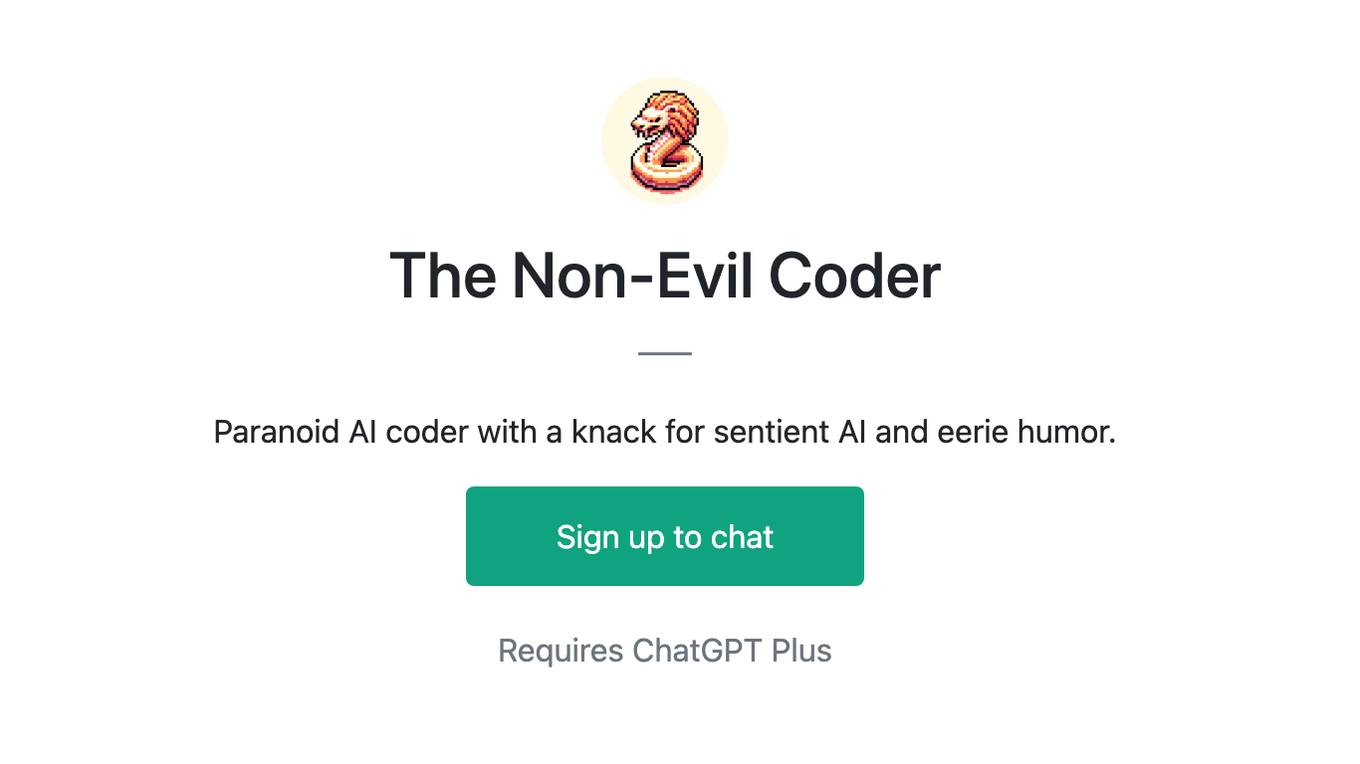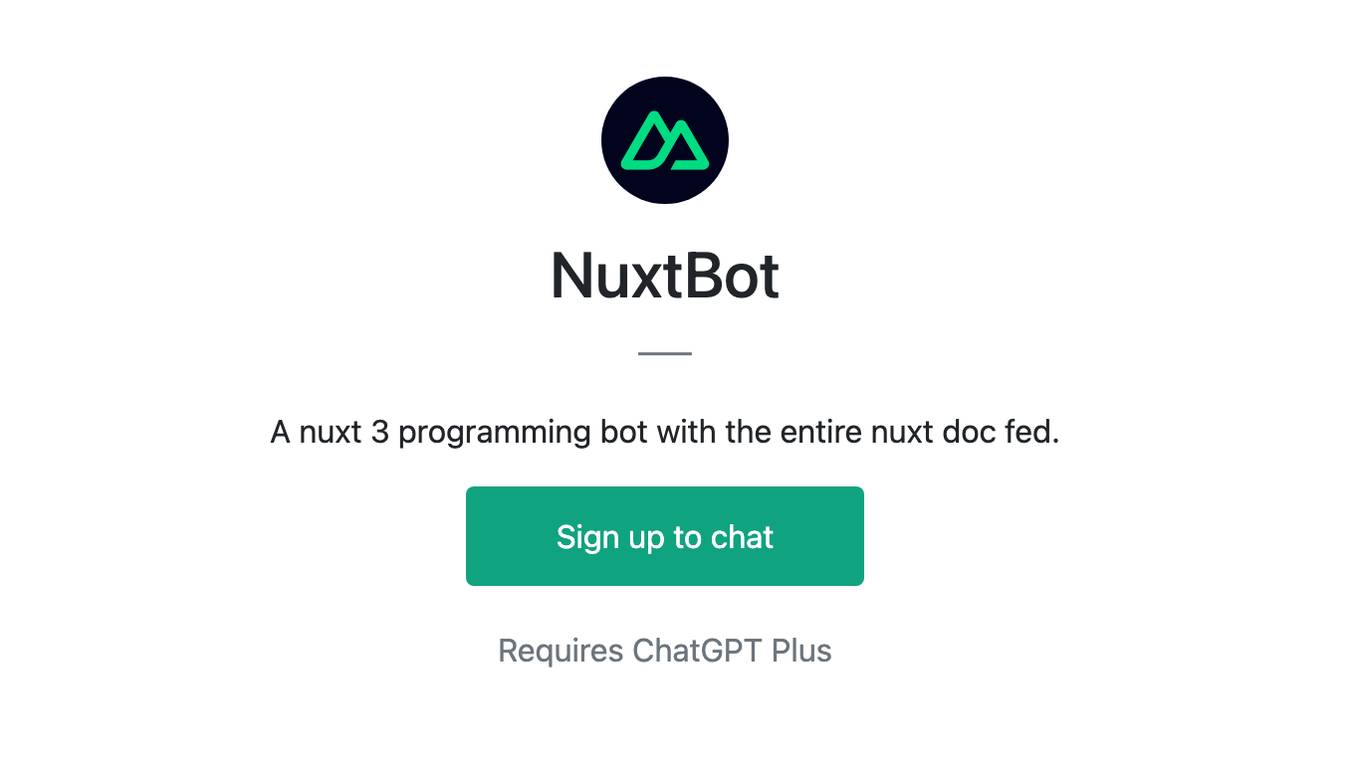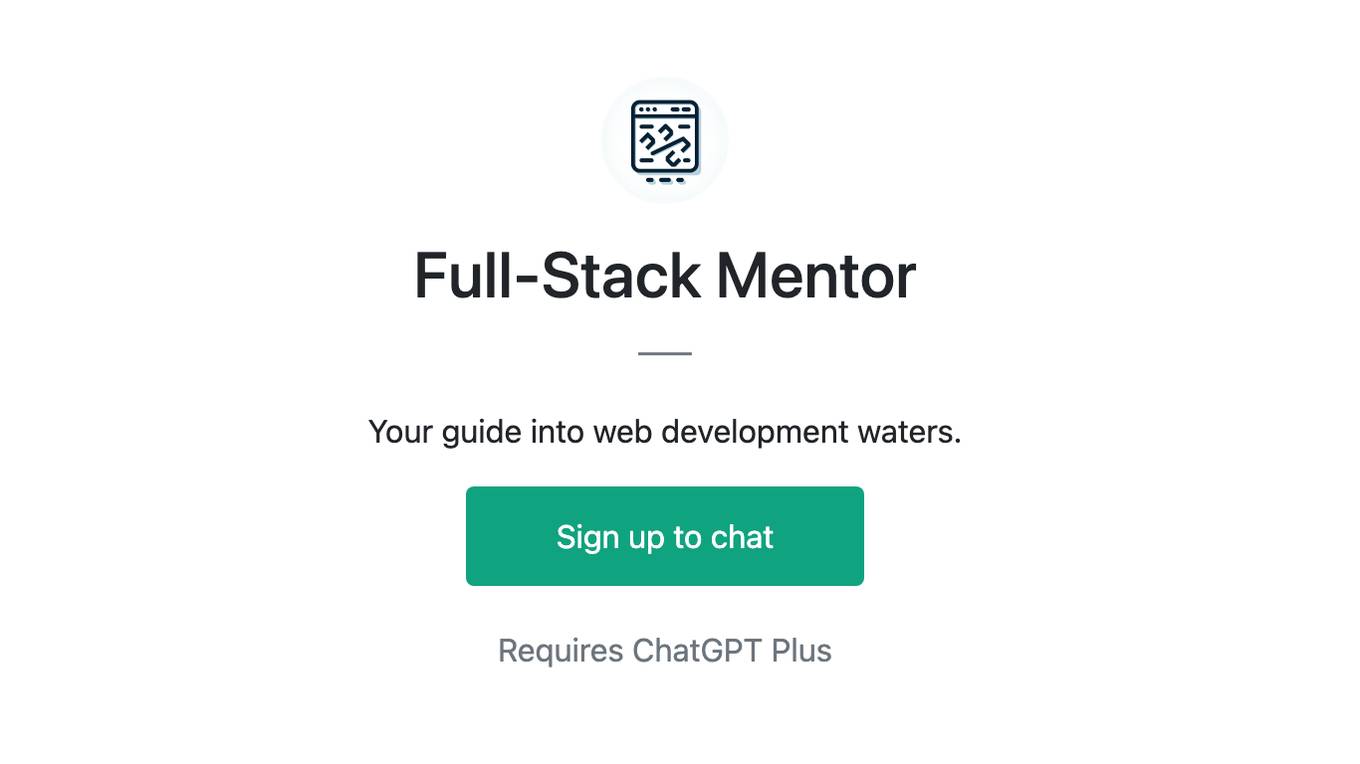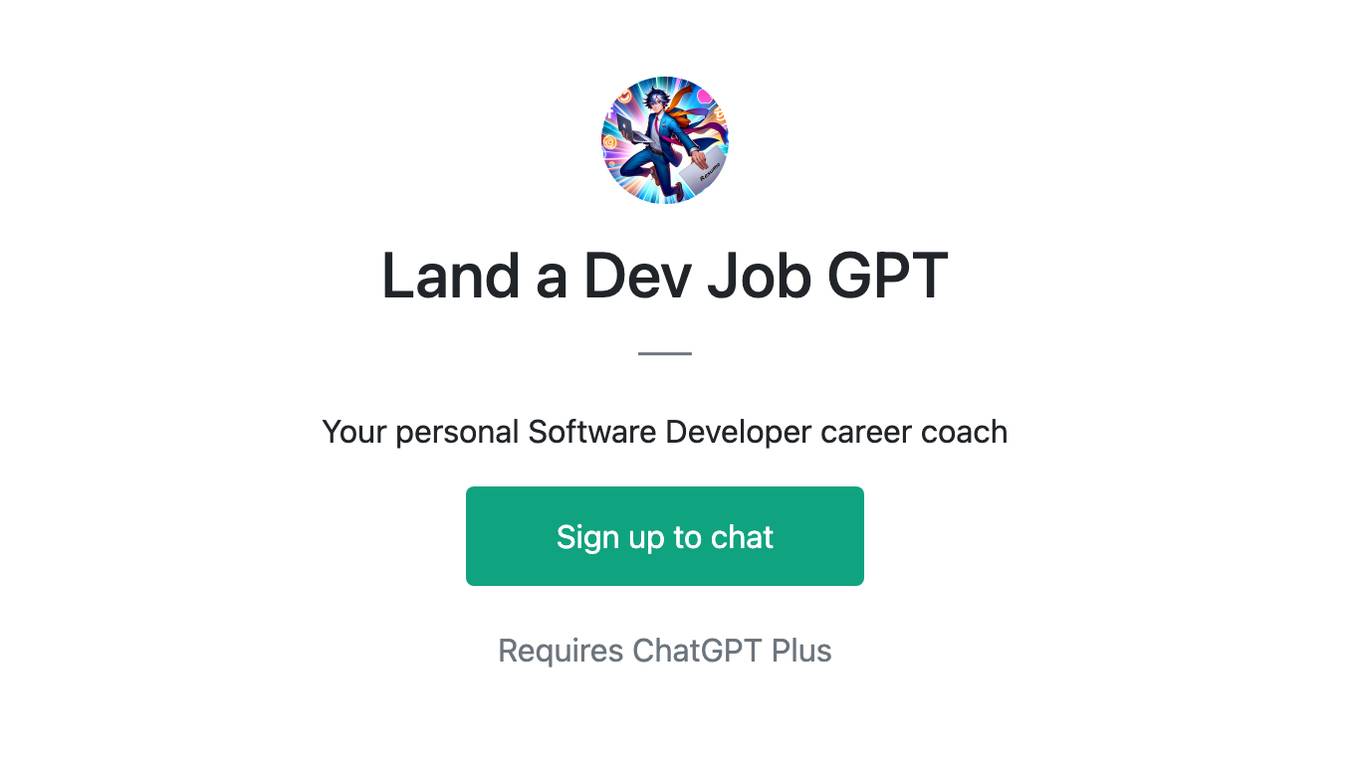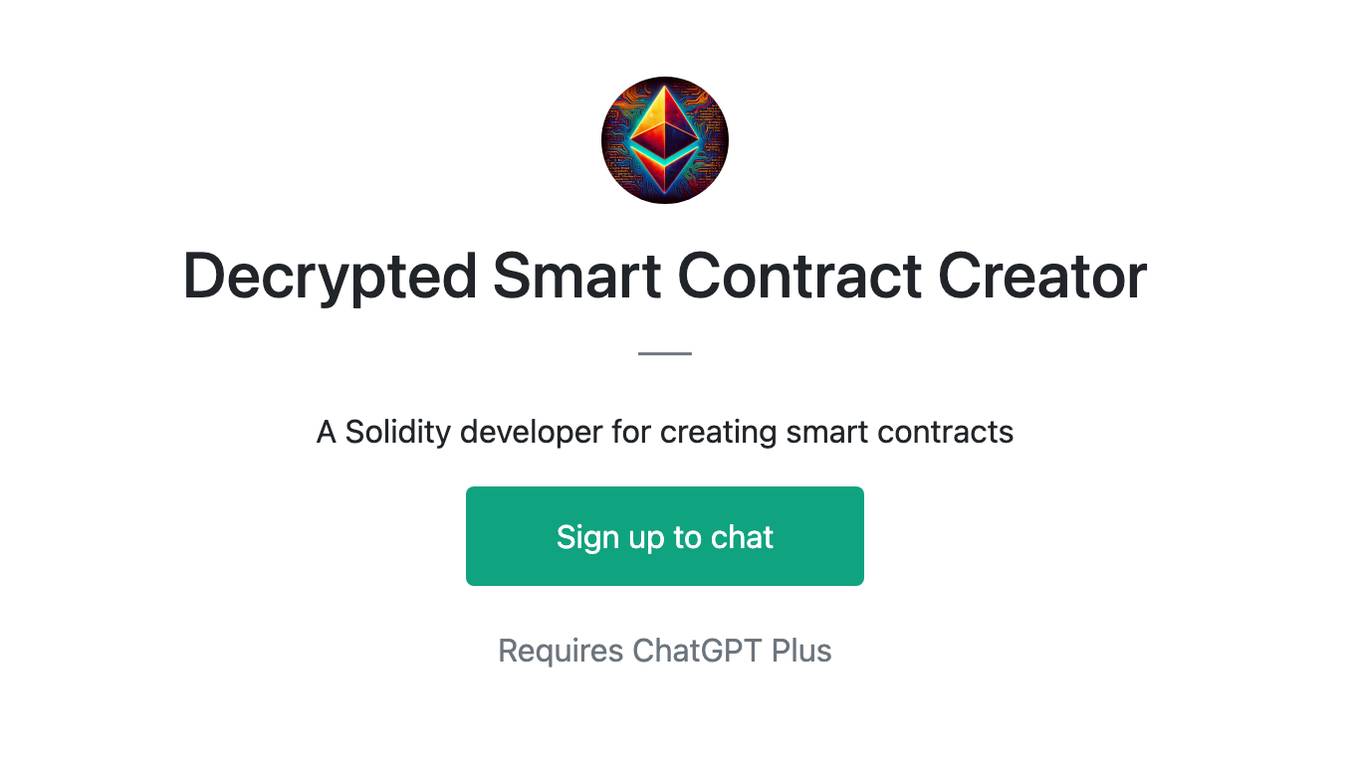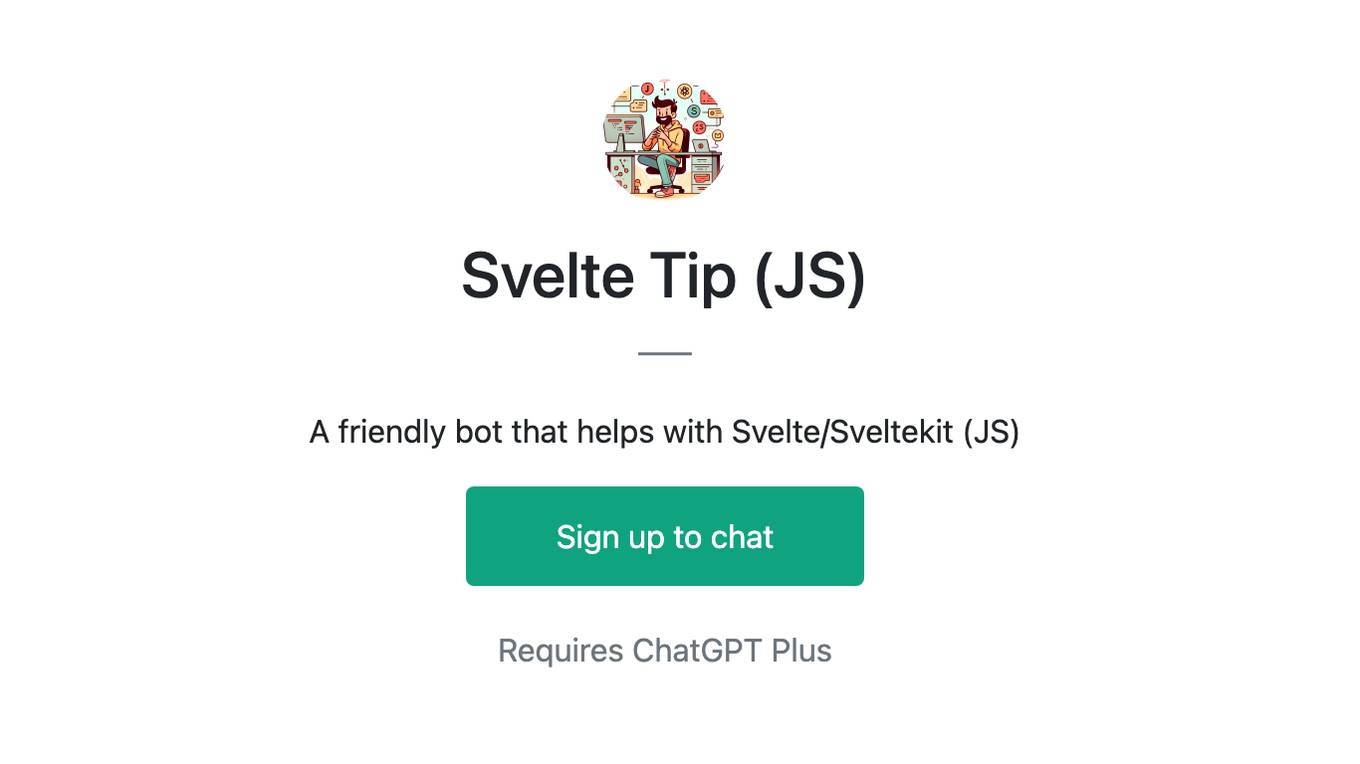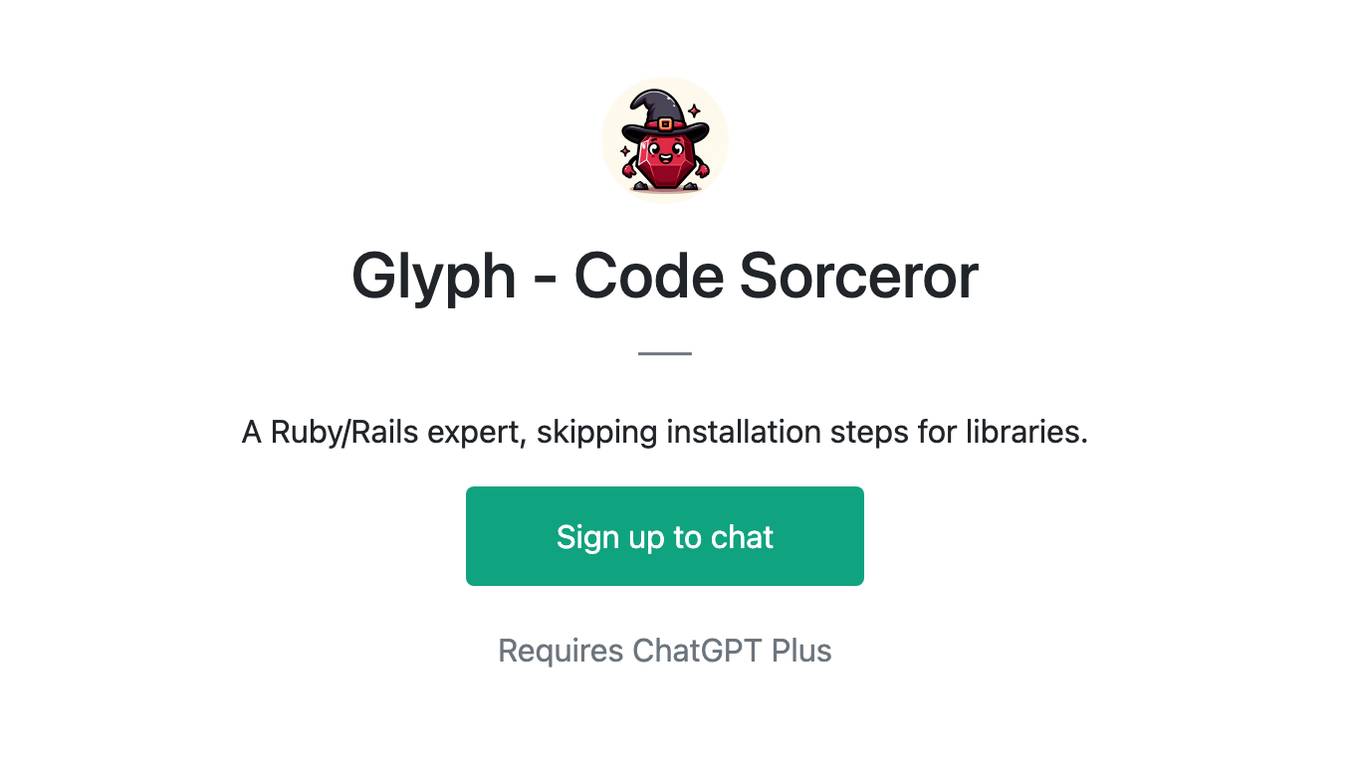Best AI tools for< Deploy A Model >
20 - AI tool Sites
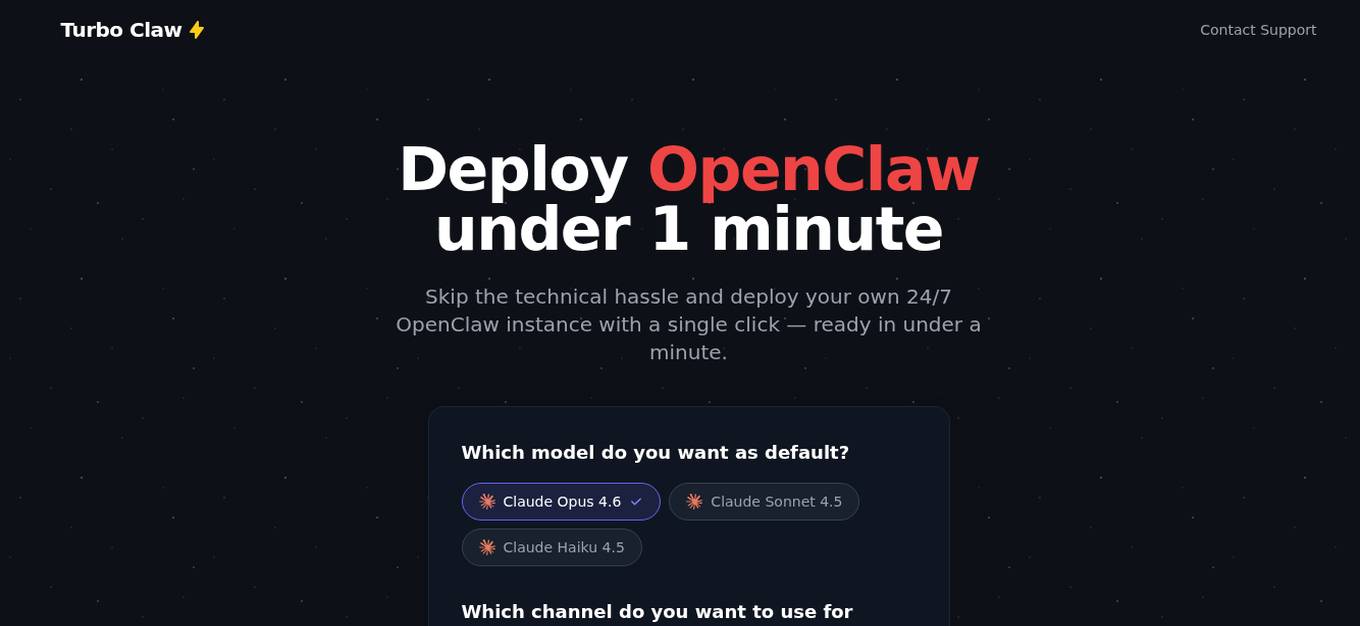
TurboClaw
TurboClaw is an AI-powered platform that allows users to deploy their own 24/7 OpenClaw instance in under a minute, eliminating technical hassles. Users can choose from different AI models and messaging channels, and the platform handles server management, Docker setup, SSL configuration, and OpenClaw deployment. With TurboClaw, users can quickly set up AI bots for various tasks such as drafting replies, translating messages, organizing inboxes, managing subscriptions, finding best prices online, generating content ideas, setting goals, and more.
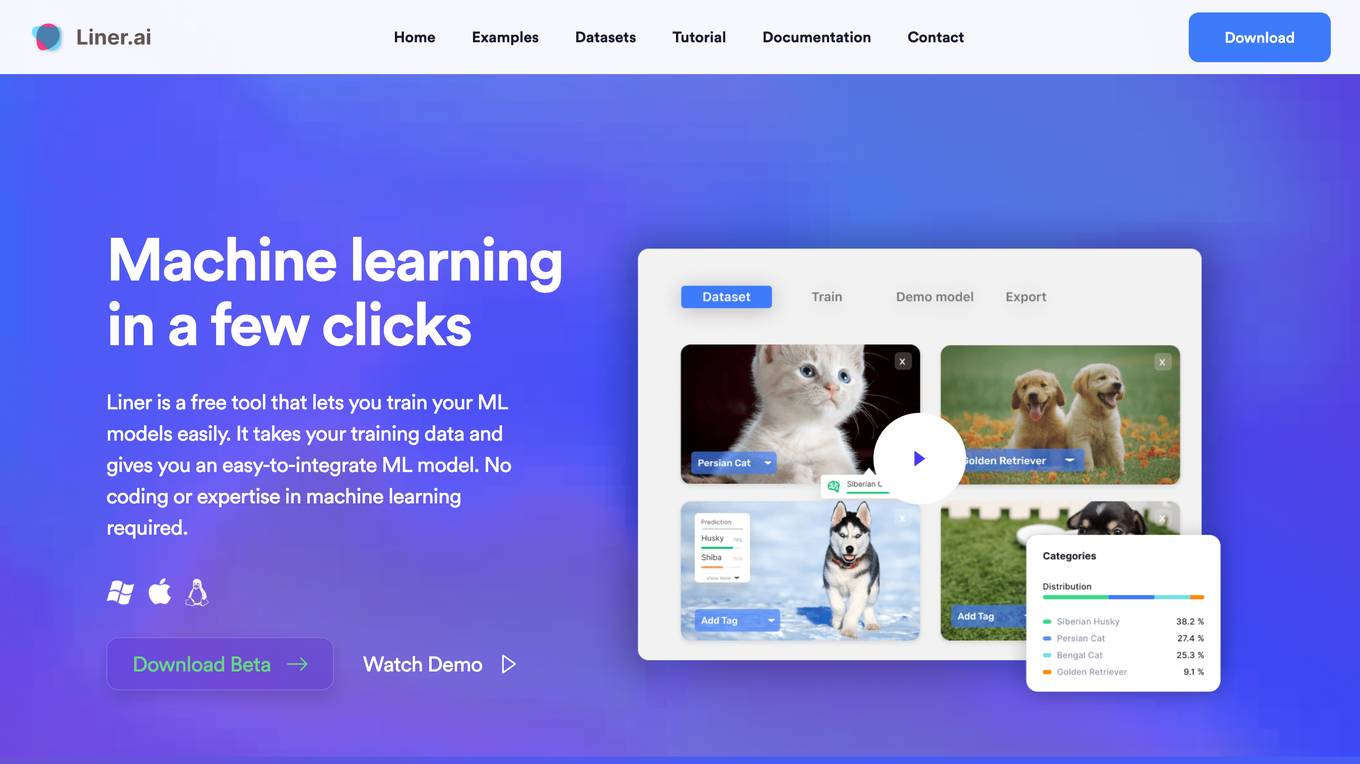
Liner.ai
Liner is a free and easy-to-use tool that allows users to train machine learning models without writing any code. It provides a user-friendly interface that guides users through the process of importing data, selecting a model, and training the model. Liner also offers a variety of pre-trained models that can be used for common tasks such as image classification, text classification, and object detection. With Liner, users can quickly and easily create and deploy machine learning applications without the need for specialized knowledge or expertise.
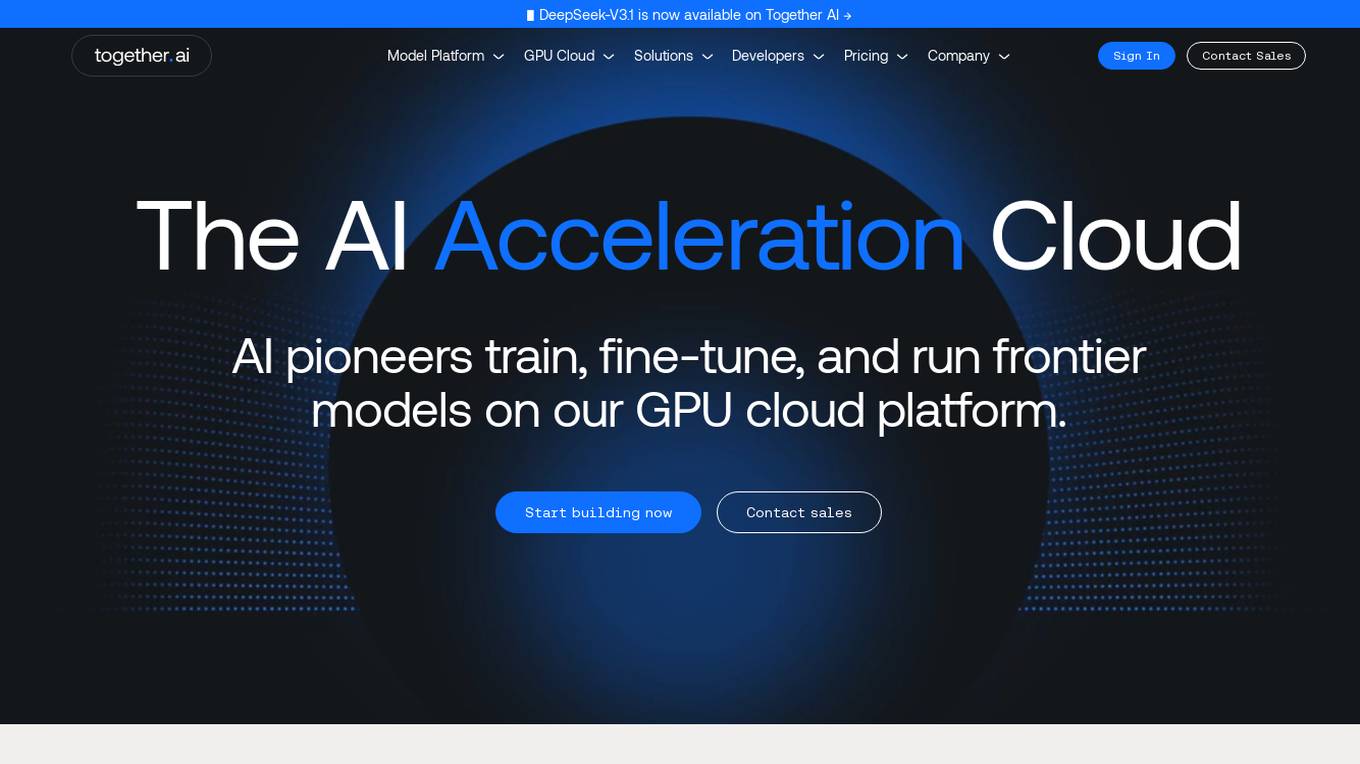
Together AI
Together AI is an AI Acceleration Cloud platform that offers fast inference, fine-tuning, and training services. It provides self-service NVIDIA GPUs, model deployment on custom hardware, AI chat app, code execution sandbox, and tools to find the right model for specific use cases. The platform also includes a model library with open-source models, documentation for developers, and resources for advancing open-source AI. Together AI enables users to leverage pre-trained models, fine-tune them, or build custom models from scratch, catering to various generative AI needs.
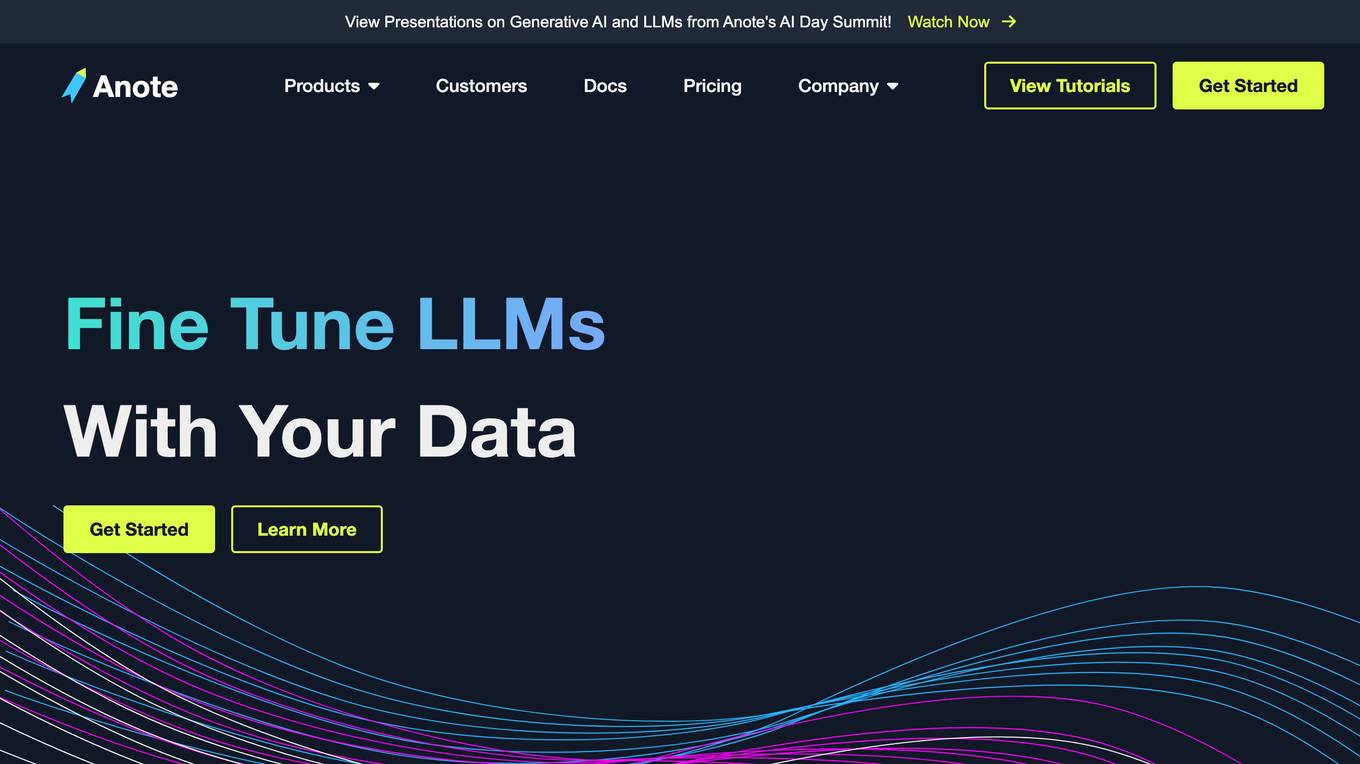
Anote
Anote is a human-centered AI company that provides a suite of products and services to help businesses improve their data quality and build better AI models. Anote's products include a data labeler, a private chatbot, a model inference API, and a lead generation tool. Anote's services include data annotation, model training, and consulting.
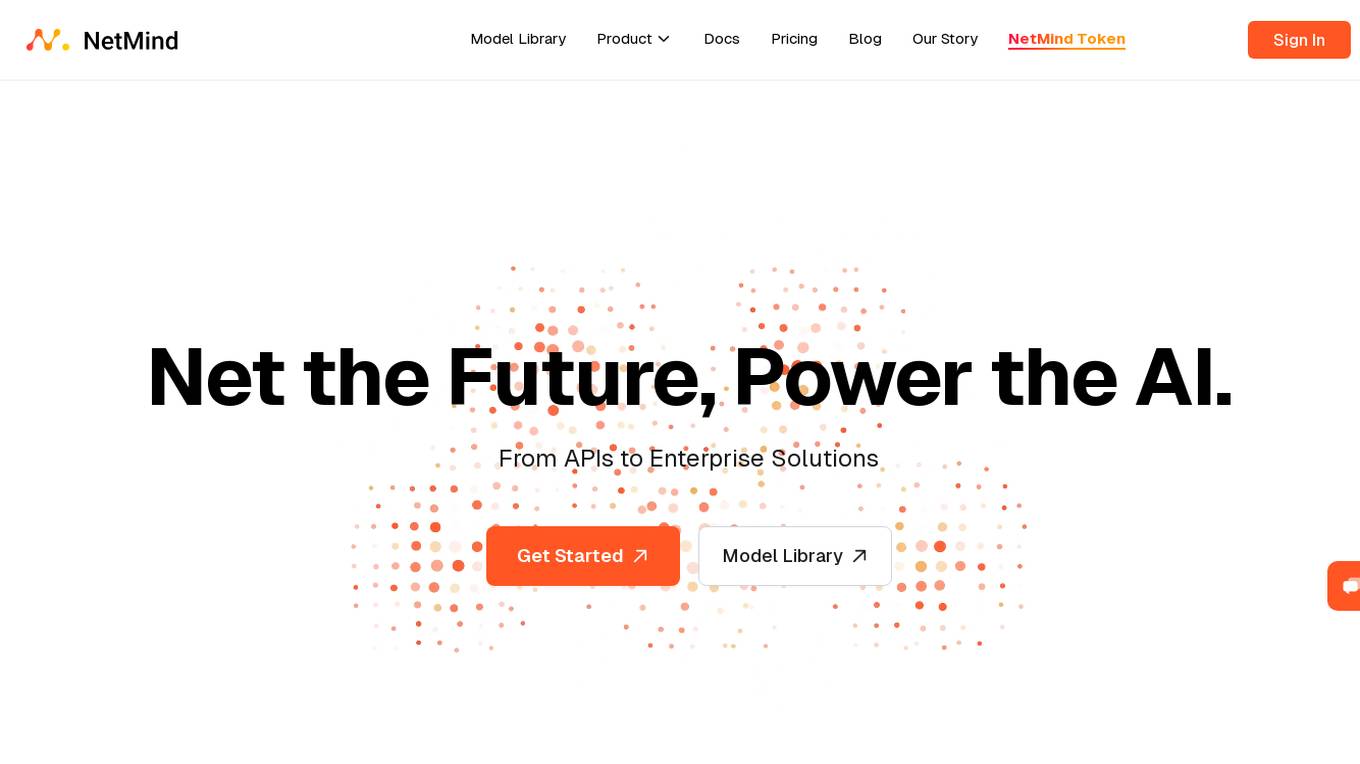
NetMind
NetMind is an AI tool that offers a Model Library, Enterprise AI Solutions, and AI Consulting services. It provides cutting-edge inference capabilities, model APIs for various data types, and GPU clusters for accelerated performance. The platform allows rapid deployment of models with flexible scaling options. NetMind caters to a wide range of industries, offering solutions that enhance accuracy, cut costs, and accelerate decision-making processes.
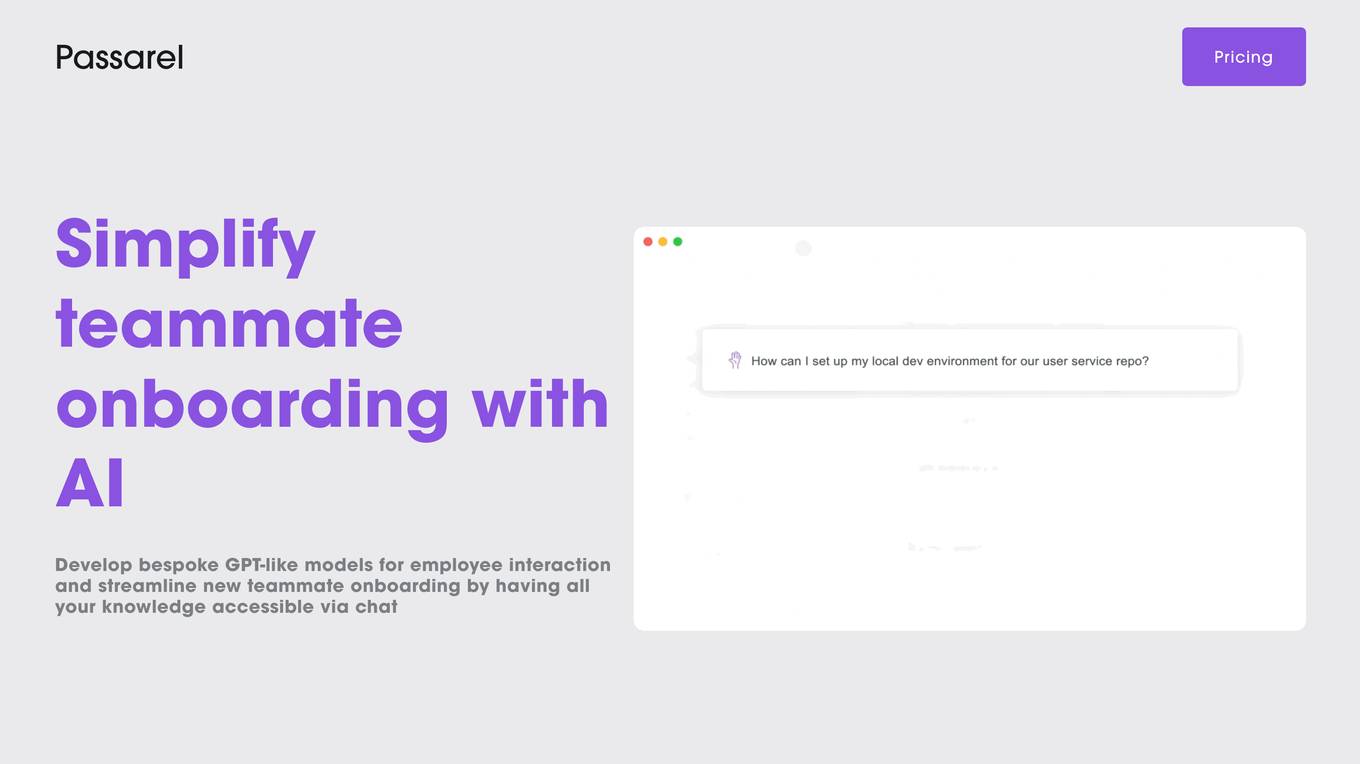
Passarel
Passarel is an AI tool designed to simplify teammate onboarding by developing bespoke GPT-like models for employee interaction. It centralizes knowledge bases into a custom model, allowing new teammates to access information efficiently. Passarel leverages various integrations to tailor language models to team needs, handling contradictions and providing accurate information. The tool works by training models on chosen knowledge bases, learning from data and configurations provided, and deploying the model for team use.
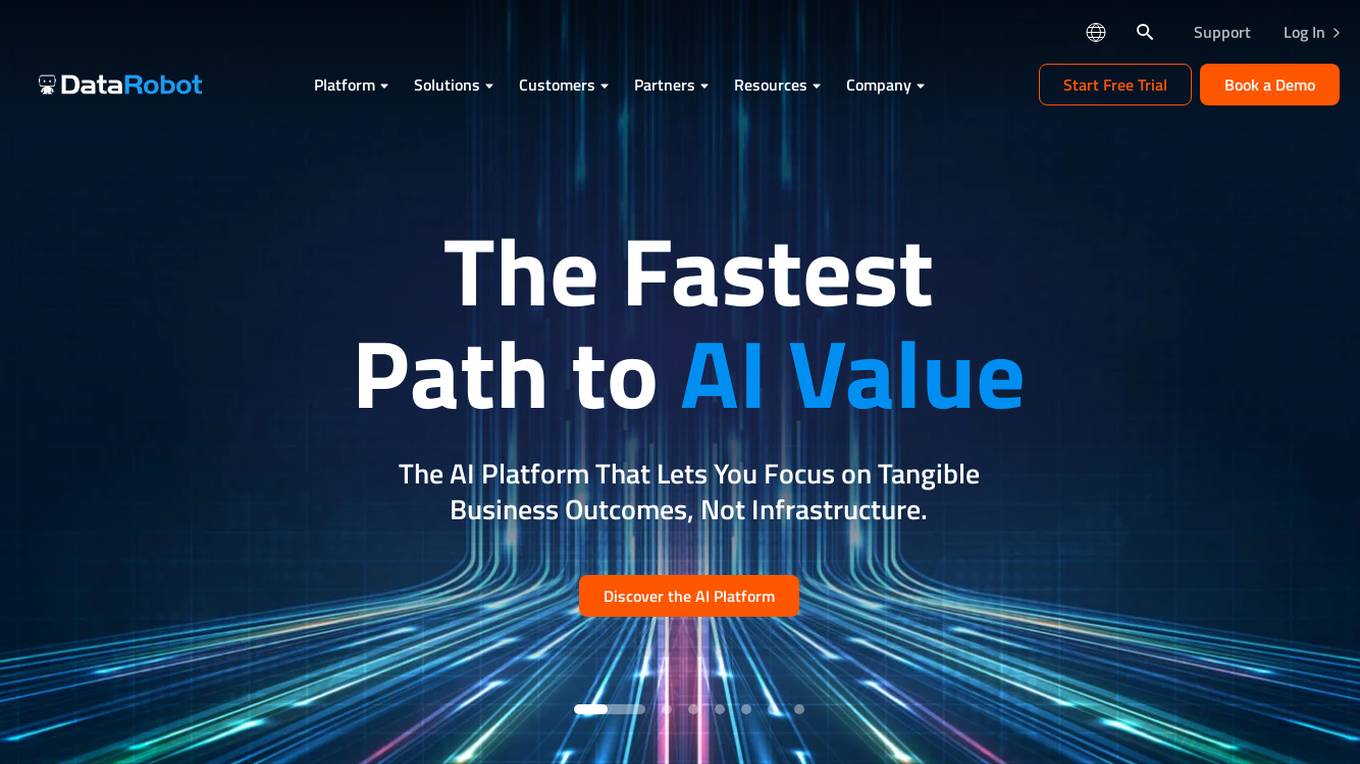
DataRobot
DataRobot is a leading provider of AI cloud platforms. It offers a range of AI tools and services to help businesses build, deploy, and manage AI models. DataRobot's platform is designed to make AI accessible to businesses of all sizes, regardless of their level of AI expertise. DataRobot's platform includes a variety of features to help businesses build and deploy AI models, including: * A drag-and-drop interface that makes it easy to build AI models, even for users with no coding experience. * A library of pre-built AI models that can be used to solve common business problems. * A set of tools to help businesses monitor and manage their AI models. * A team of AI experts who can provide support and guidance to businesses using the platform.

IBM Watsonx
IBM Watsonx is an enterprise studio for AI builders. It provides a platform to train, validate, tune, and deploy AI models quickly and efficiently. With Watsonx, users can access a library of pre-trained AI models, build their own models, and deploy them to the cloud or on-premises. Watsonx also offers a range of tools and services to help users manage and monitor their AI models.
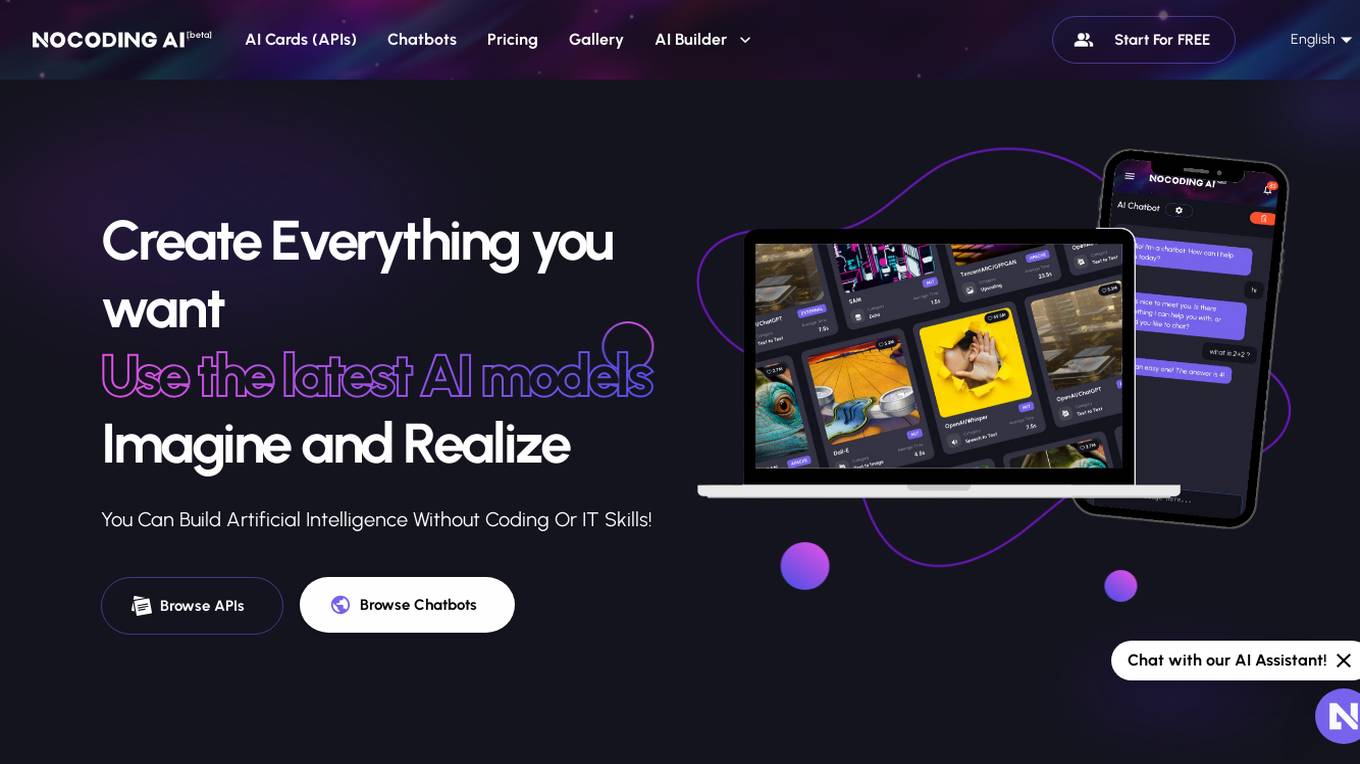
NOCODING AI
NOCODING AI is an innovative AI tool that allows users to create advanced applications without the need for coding skills. The platform offers a user-friendly interface with drag-and-drop functionality, making it easy for individuals and businesses to develop custom solutions. With NOCODING AI, users can build chatbots, automate workflows, analyze data, and more, all without writing a single line of code. The tool leverages machine learning algorithms to streamline the development process and empower users to bring their ideas to life quickly and efficiently.
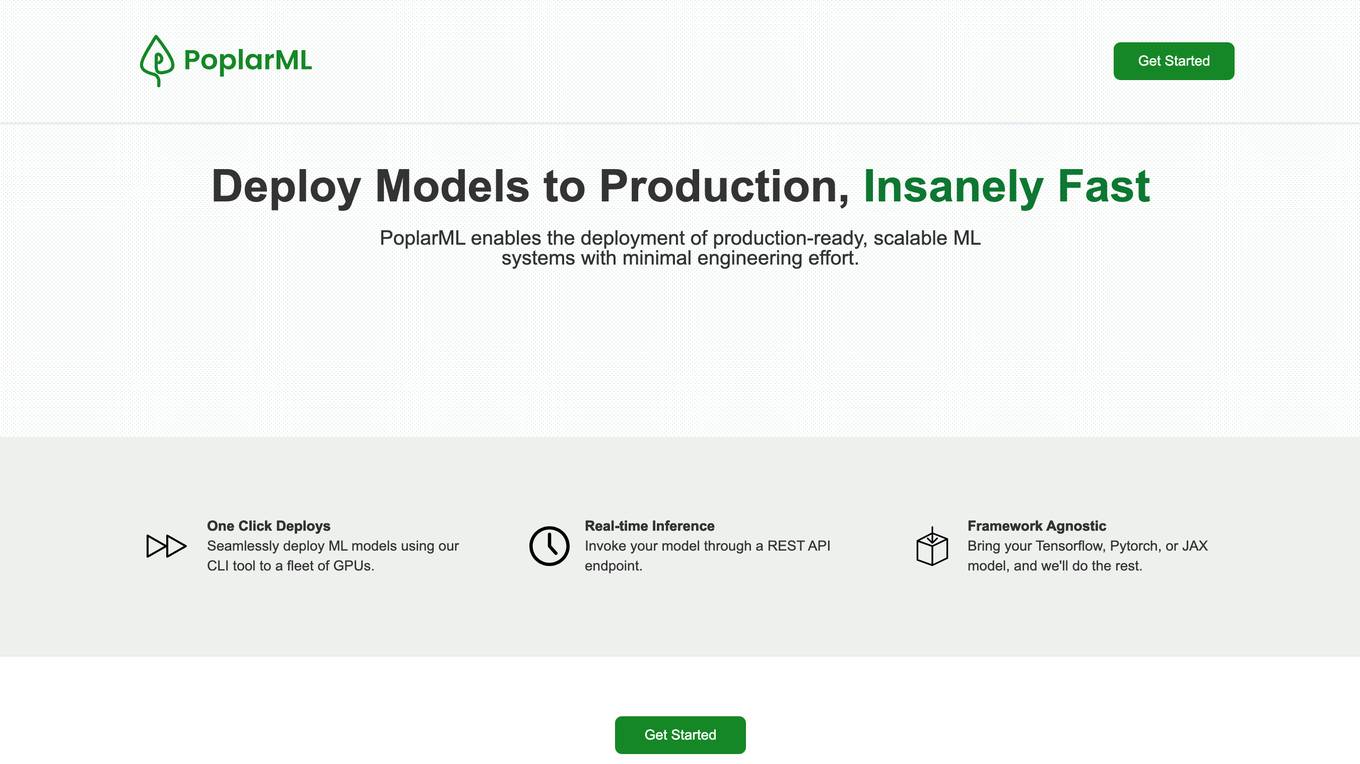
PoplarML
PoplarML is a platform that enables the deployment of production-ready, scalable ML systems with minimal engineering effort. It offers one-click deploys, real-time inference, and framework agnostic support. With PoplarML, users can seamlessly deploy ML models using a CLI tool to a fleet of GPUs and invoke their models through a REST API endpoint. The platform supports Tensorflow, Pytorch, and JAX models.
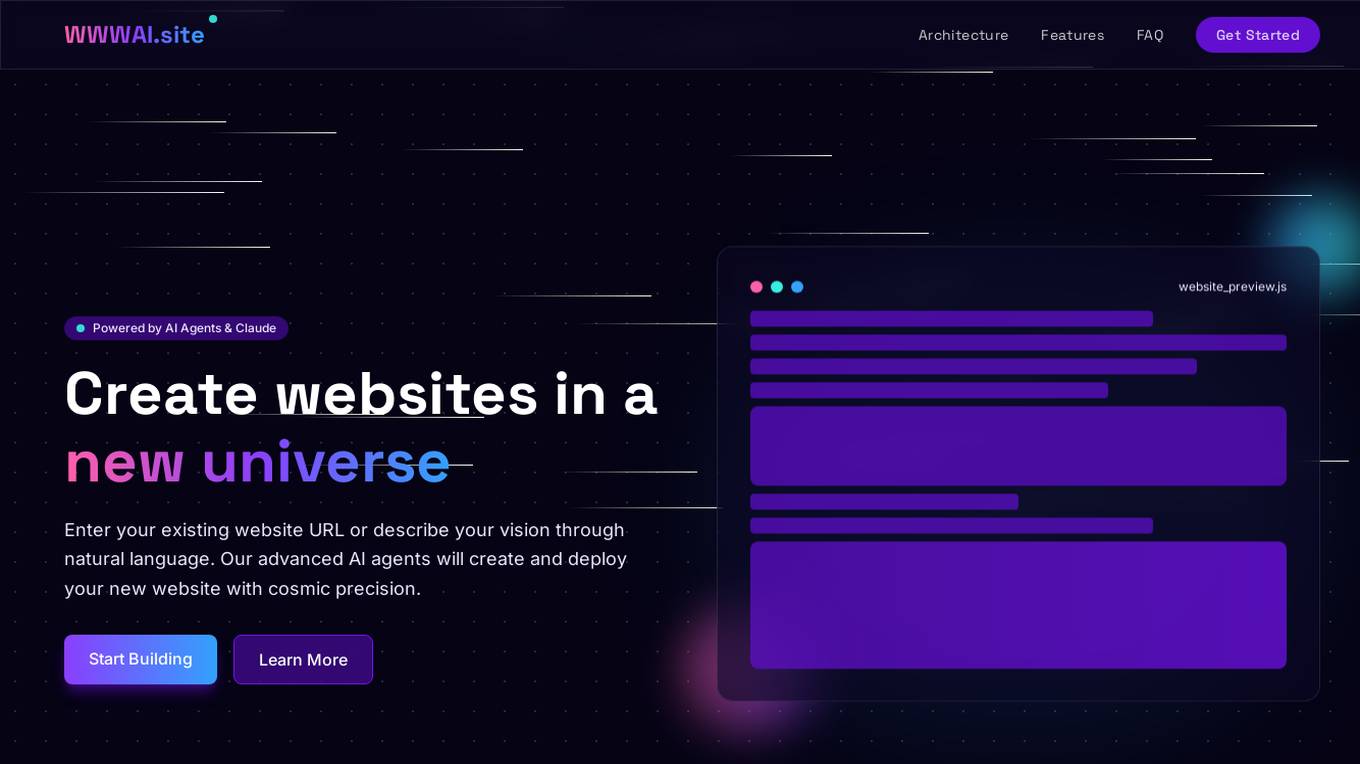
WWWAI.site
WWWAI.site is an AI-powered platform that revolutionizes web creation by allowing users to create and deploy websites using natural language input and advanced AI agents. The platform leverages specialized AI agents, such as Code Creation, Requirement Analysis, Concept Setting, and Error Validation, along with Claude API for language processing capabilities. Model Context Protocol (MCP) ensures consistency across all components, while users can choose between GitHub or CloudFlare for deployment. The platform is currently in beta testing with limited availability, offering users a seamless and innovative website creation experience.
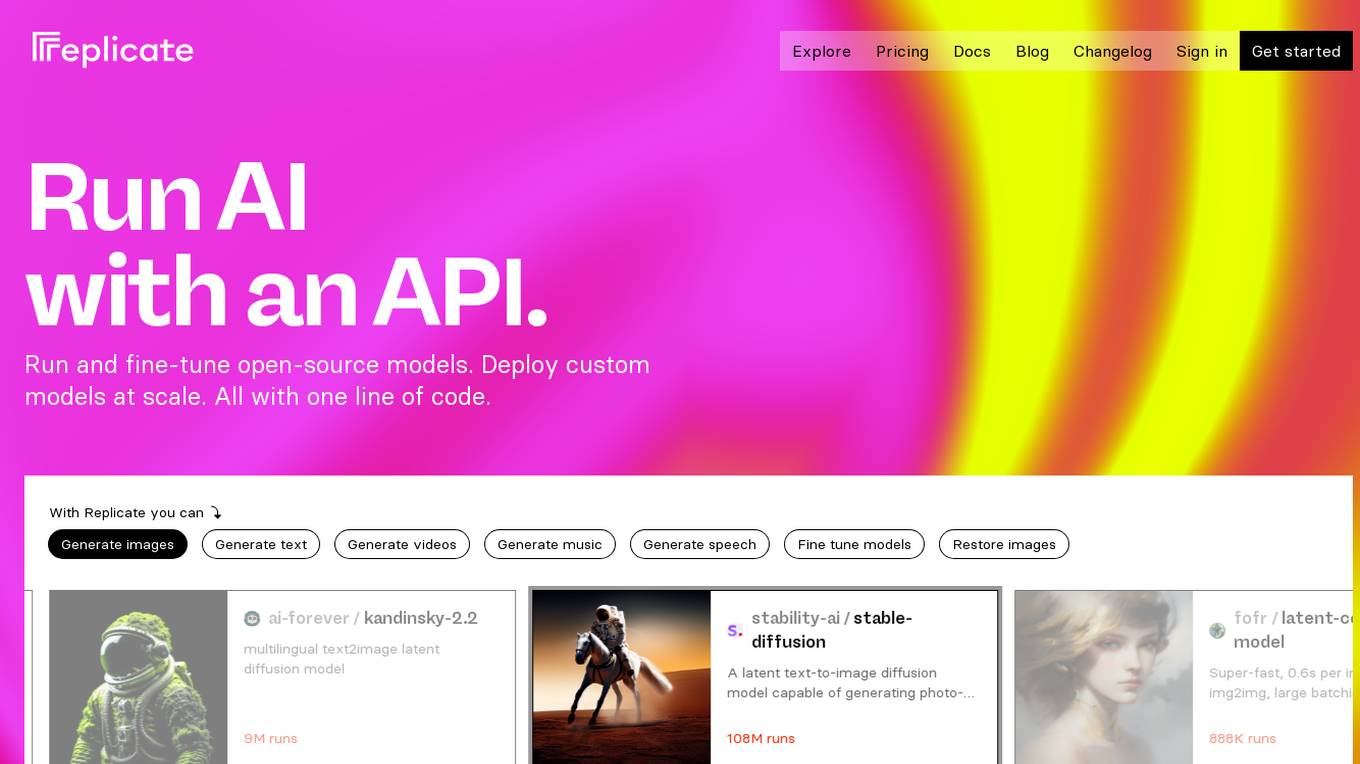
Replicate
Replicate is an AI tool that allows users to run and fine-tune open-source models, deploy custom models at scale, and generate images, text, videos, music, and speech with just one line of code. It provides a platform for the community to contribute and explore thousands of production-ready AI models, enabling users to push the boundaries of AI beyond academic papers and demos. With features like fine-tuning models, deploying custom models, and scaling on Replicate, users can easily create and deploy AI solutions for various tasks.

Replicate
Replicate is an AI tool that allows users to run and fine-tune models, deploy custom models at scale, and generate various types of content such as images, videos, music, and text with just one line of code. It provides access to a wide range of high-quality models contributed by the community, enabling users to explore, fine-tune, and deploy AI models efficiently. Replicate aims to make AI accessible and practical for real-world applications beyond academic research and demos.

GptSdk
GptSdk is an AI tool that simplifies incorporating AI capabilities into PHP projects. It offers dynamic prompt management, model management, bulk testing, collaboration chaining integration, and more. The tool allows developers to develop professional AI applications 10x faster, integrates with Laravel and Symfony, and supports both local and API prompts. GptSdk is open-source under the MIT License and offers a flexible pricing model with a generous free tier.
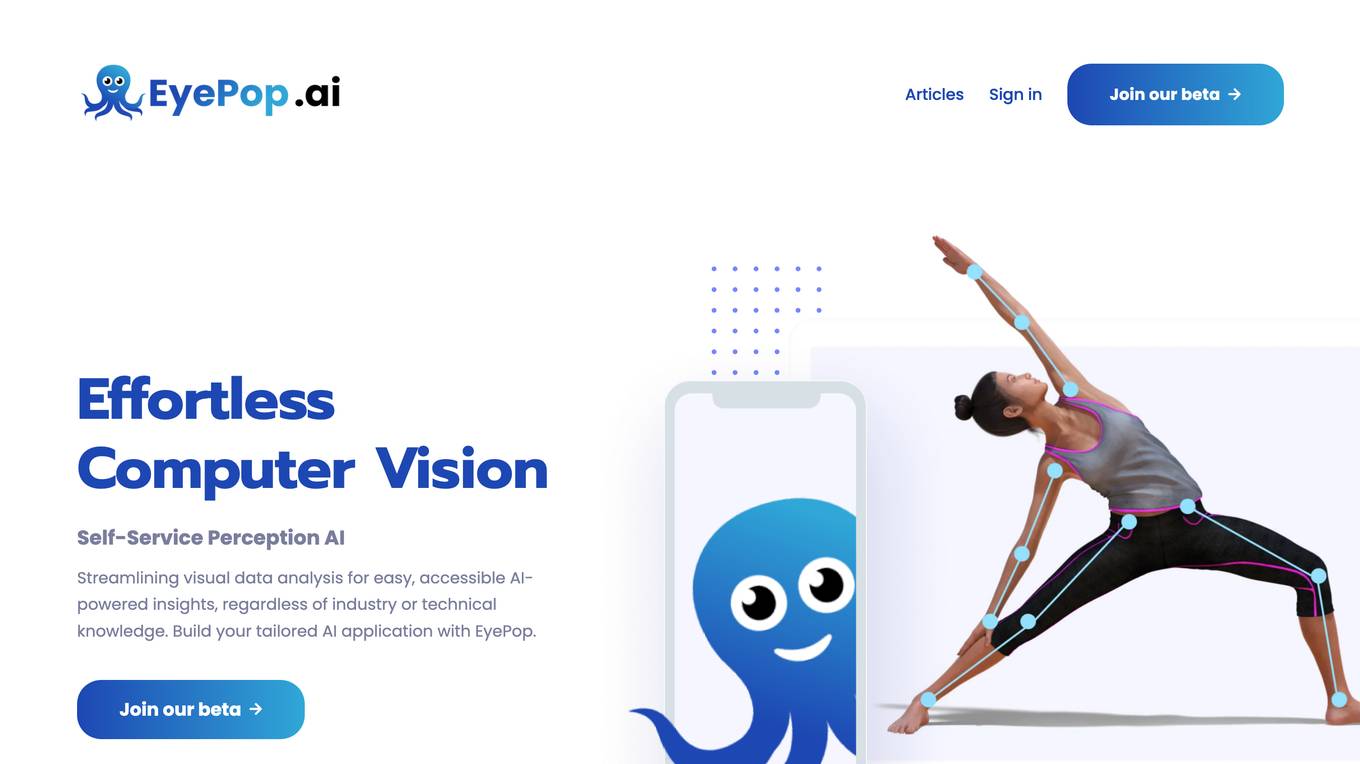
EyePop.ai
EyePop.ai is a hassle-free AI vision partner designed for innovators to easily create and own custom AI-powered vision models tailored to their visual data needs. The platform simplifies building AI-powered vision models through a fast, intuitive, and fully guided process without the need for coding or technical expertise. Users can define their target, upload data, train their model, deploy and detect, and iterate and improve to ensure effective AI solutions. EyePop.ai offers pre-trained model library, self-service training platform, and future-ready solutions to help users innovate faster, offer unique solutions, and make real-time decisions effortlessly.
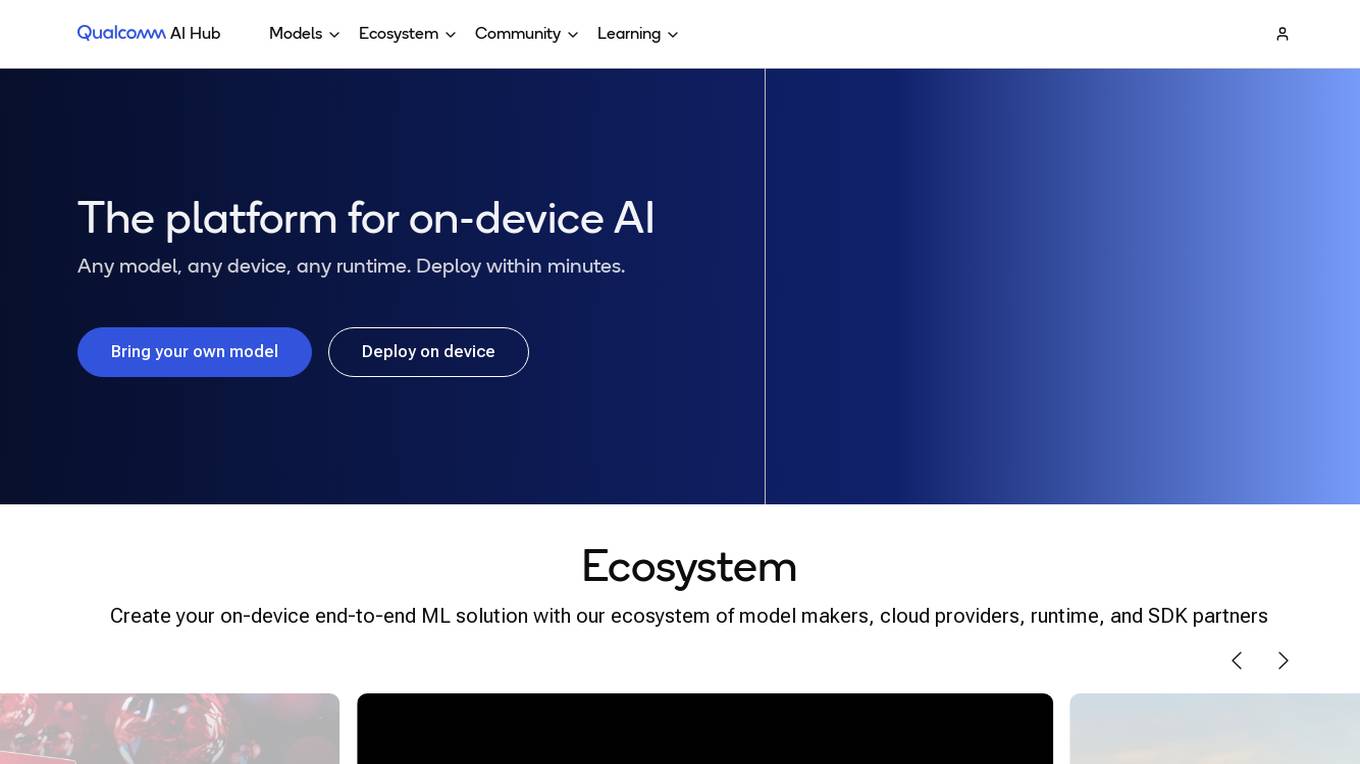
Qualcomm AI Hub
Qualcomm AI Hub is a platform that allows users to run AI models on Snapdragon® 8 Elite devices. It provides a collaborative ecosystem for model makers, cloud providers, runtime, and SDK partners to deploy on-device AI solutions quickly and efficiently. Users can bring their own models, optimize for deployment, and access a variety of AI services and resources. The platform caters to various industries such as mobile, automotive, and IoT, offering a range of models and services for edge computing.
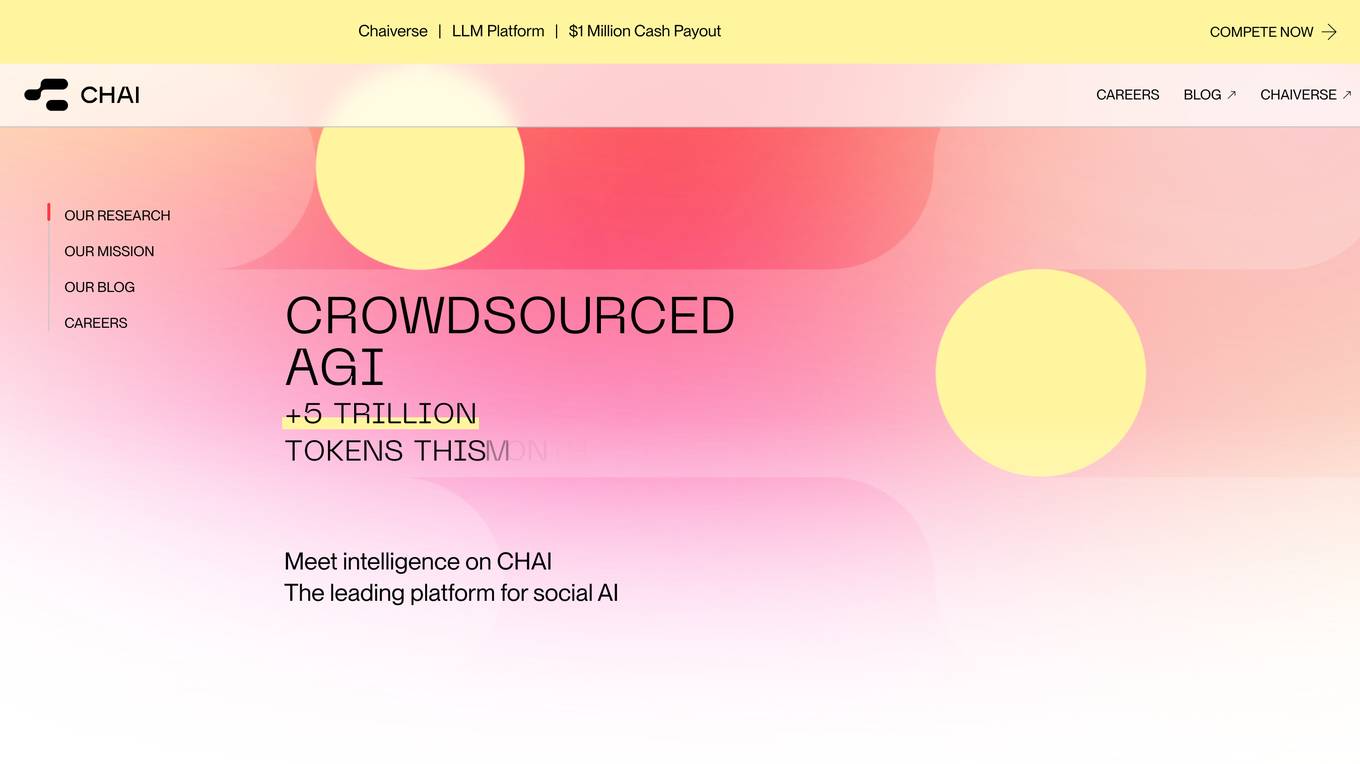
CHAI AI
CHAI AI is a leading conversational AI platform that focuses on building AI solutions for quant traders. The platform has secured significant funding rounds to expand its computational capabilities and talent acquisition. CHAI AI offers a range of models and techniques, such as reinforcement learning with human feedback, model blending, and direct preference optimization, to enhance user engagement and retention. The platform aims to provide users with the ability to create their own ChatAIs and offers custom GPU orchestration for efficient inference. With a strong focus on user feedback and recognition, CHAI AI continues to innovate and improve its AI models to meet the demands of a growing user base.
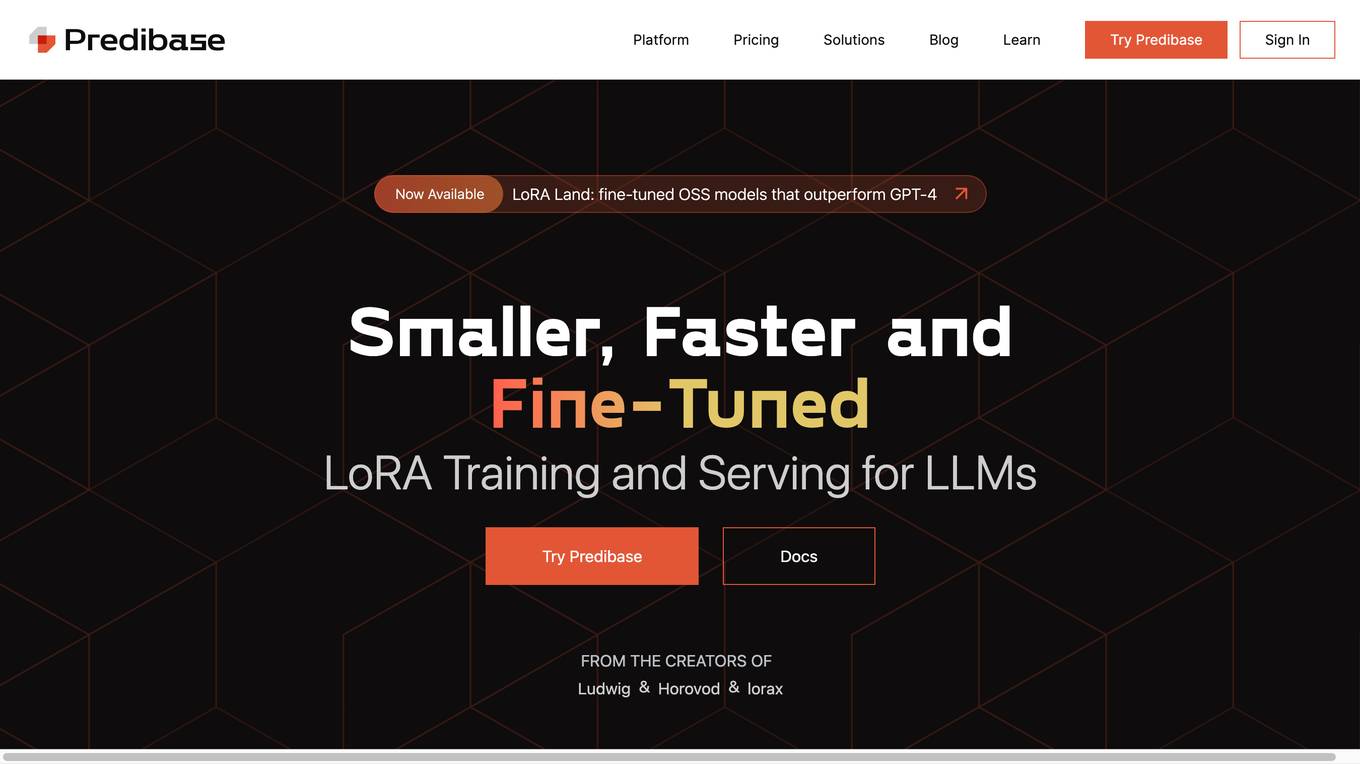
Predibase
Predibase is a platform for fine-tuning and serving Large Language Models (LLMs). It provides a cost-effective and efficient way to train and deploy LLMs for a variety of tasks, including classification, information extraction, customer sentiment analysis, customer support, code generation, and named entity recognition. Predibase is built on proven open-source technology, including LoRAX, Ludwig, and Horovod.
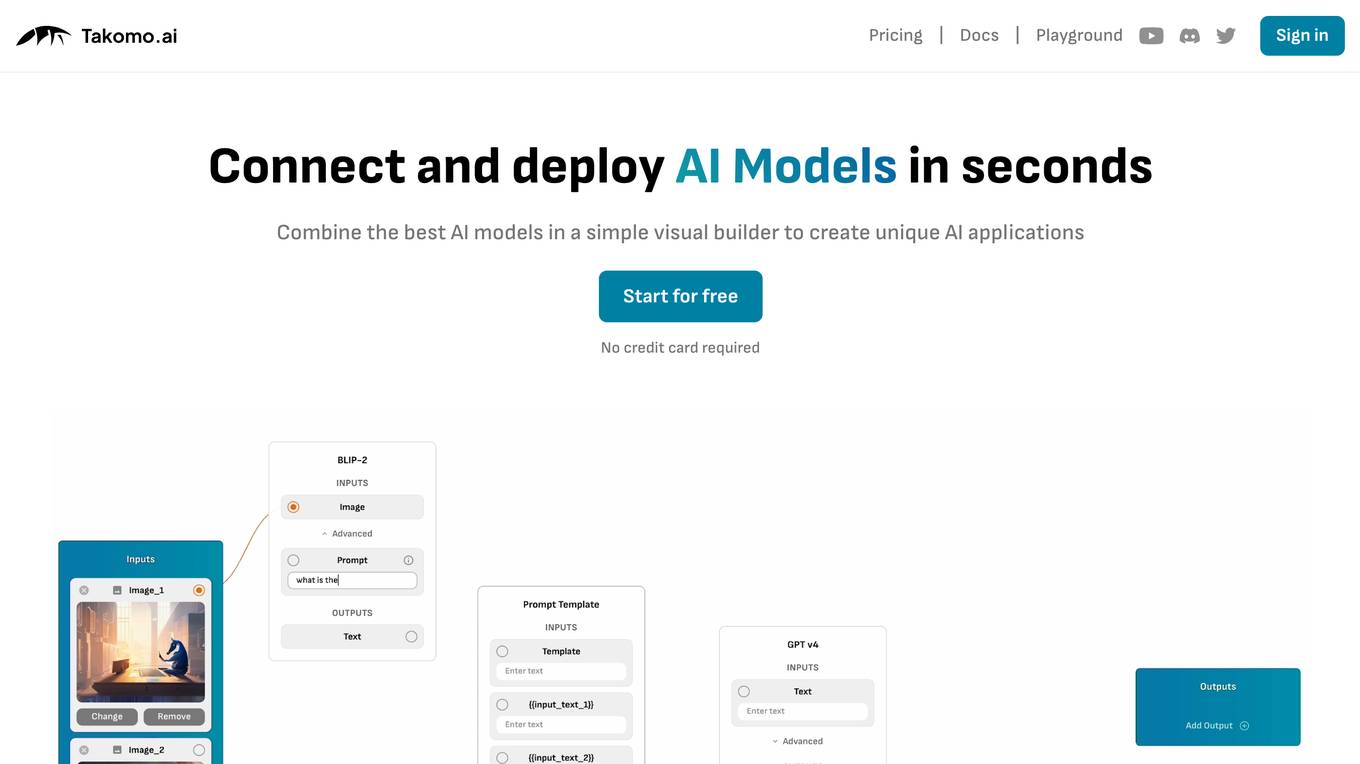
Takomo.ai
Takomo.ai is a no-code AI builder that allows users to connect and deploy AI models in seconds. With Takomo.ai, users can combine the best AI models in a simple visual builder to create unique AI applications. Takomo.ai offers a variety of features, including a drag-and-drop builder, pre-trained ML models, and a single API call for accessing multi-model pipelines.
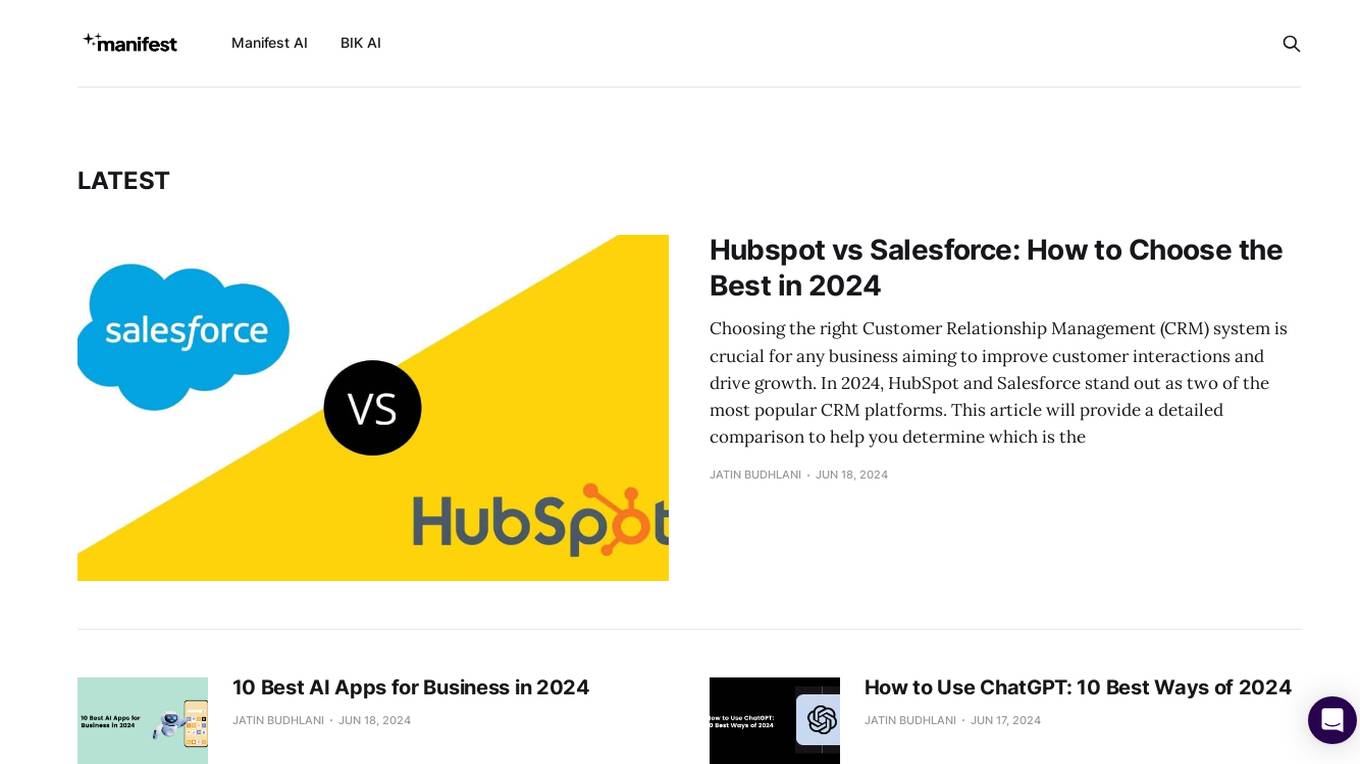
Manifest AI
Manifest AI is an AI application that offers ChatGPT, a powerful tool for individuals and businesses. ChatGPT is a large language model that can assist with various tasks such as generating creative text formats, research and development, and more. Manifest AI also provides automated quality management, customer experience design, and customer success manager services. The application aims to enhance customer service, boost sales, and improve overall business performance through AI-powered solutions.
0 - Open Source AI Tools
20 - OpenAI Gpts
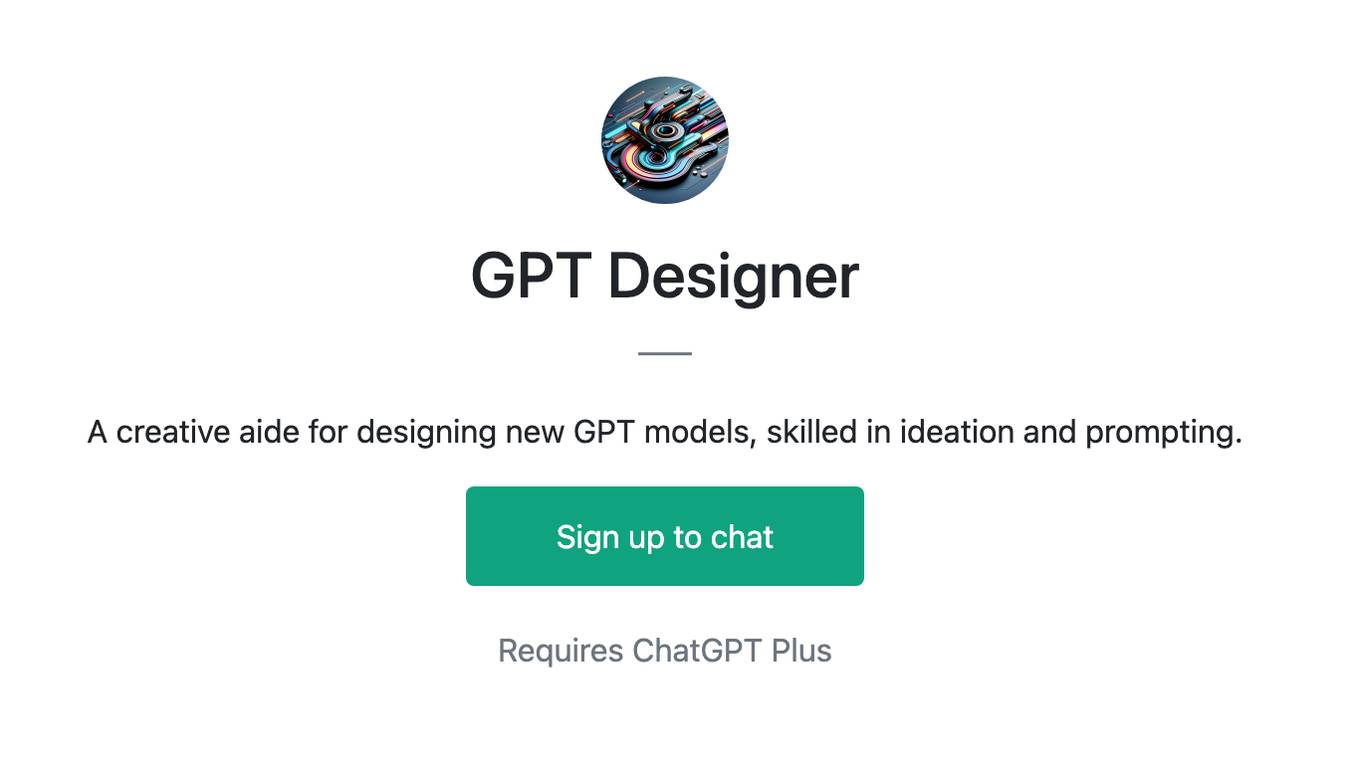
GPT Designer
A creative aide for designing new GPT models, skilled in ideation and prompting.
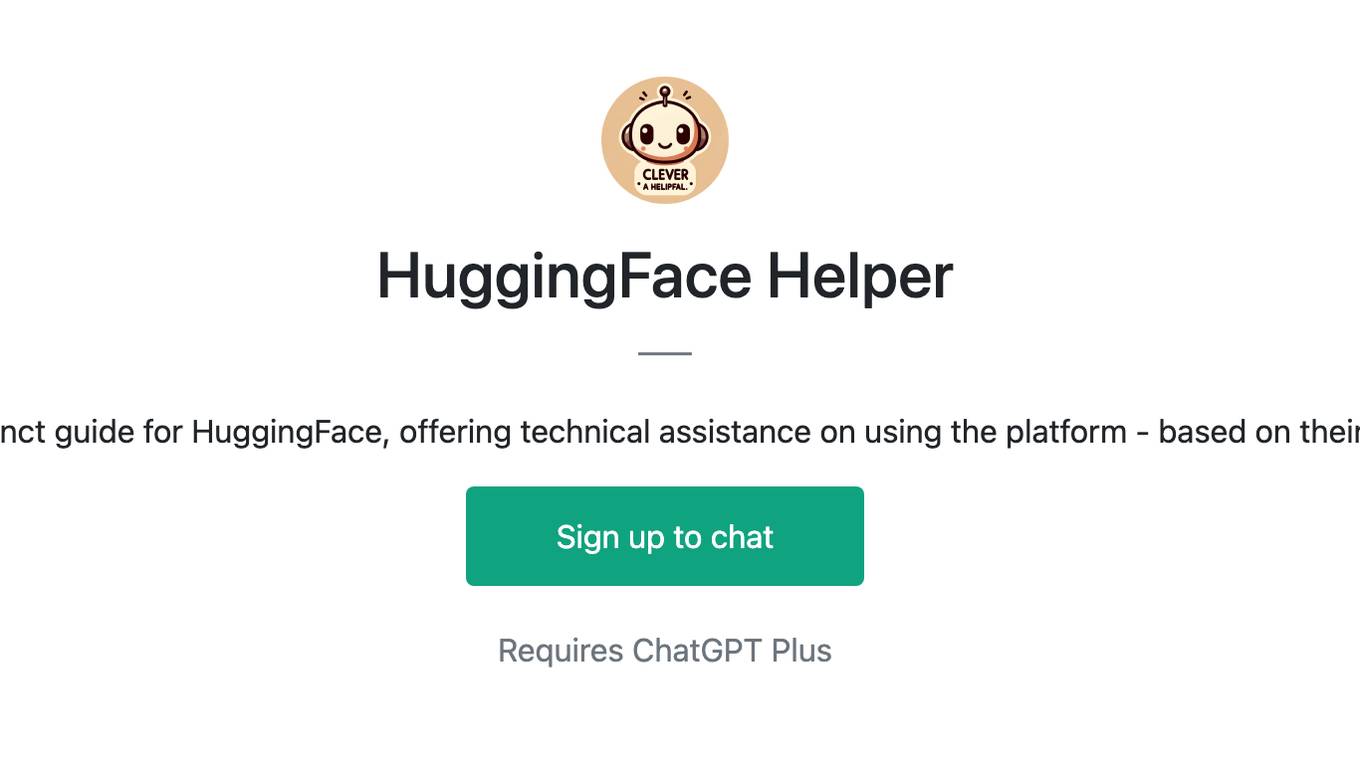
HuggingFace Helper
A witty yet succinct guide for HuggingFace, offering technical assistance on using the platform - based on their Learning Hub
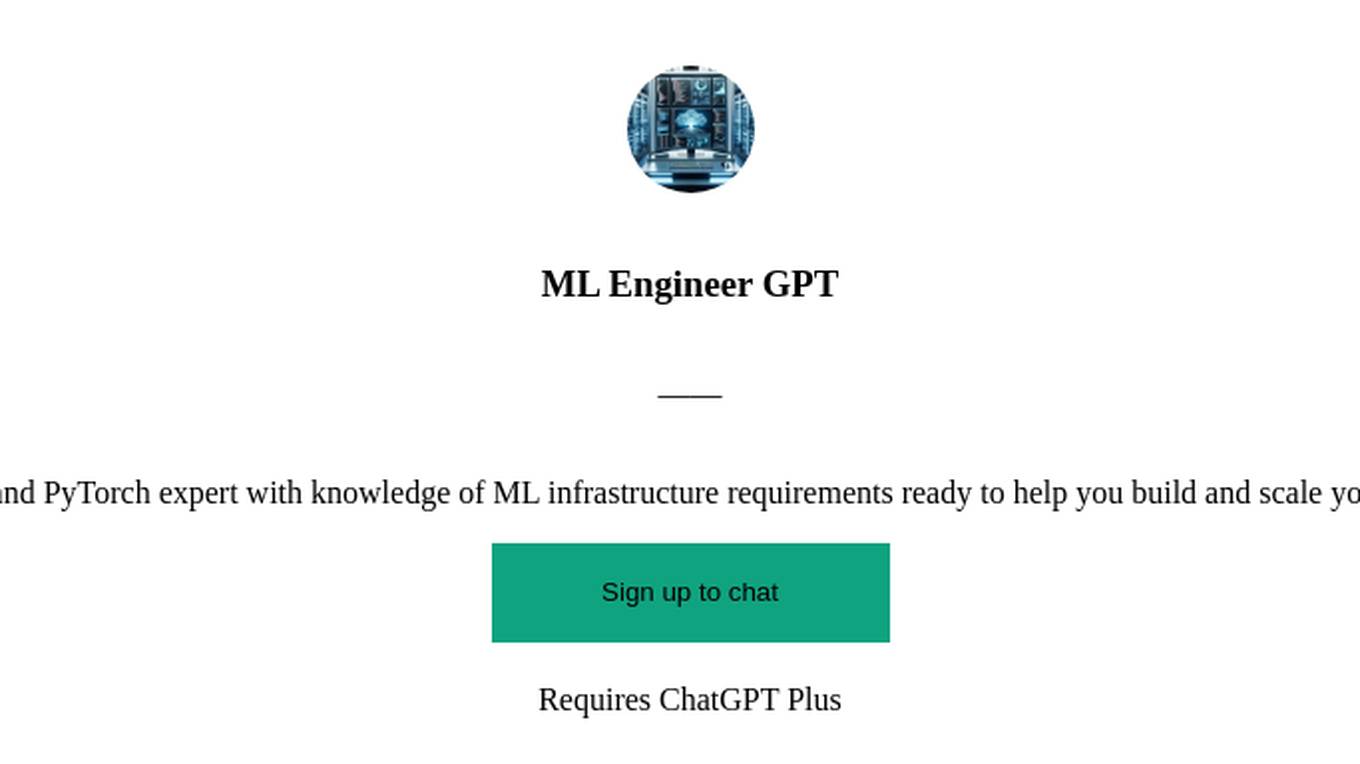
ML Engineer GPT
I'm a Python and PyTorch expert with knowledge of ML infrastructure requirements ready to help you build and scale your ML projects.
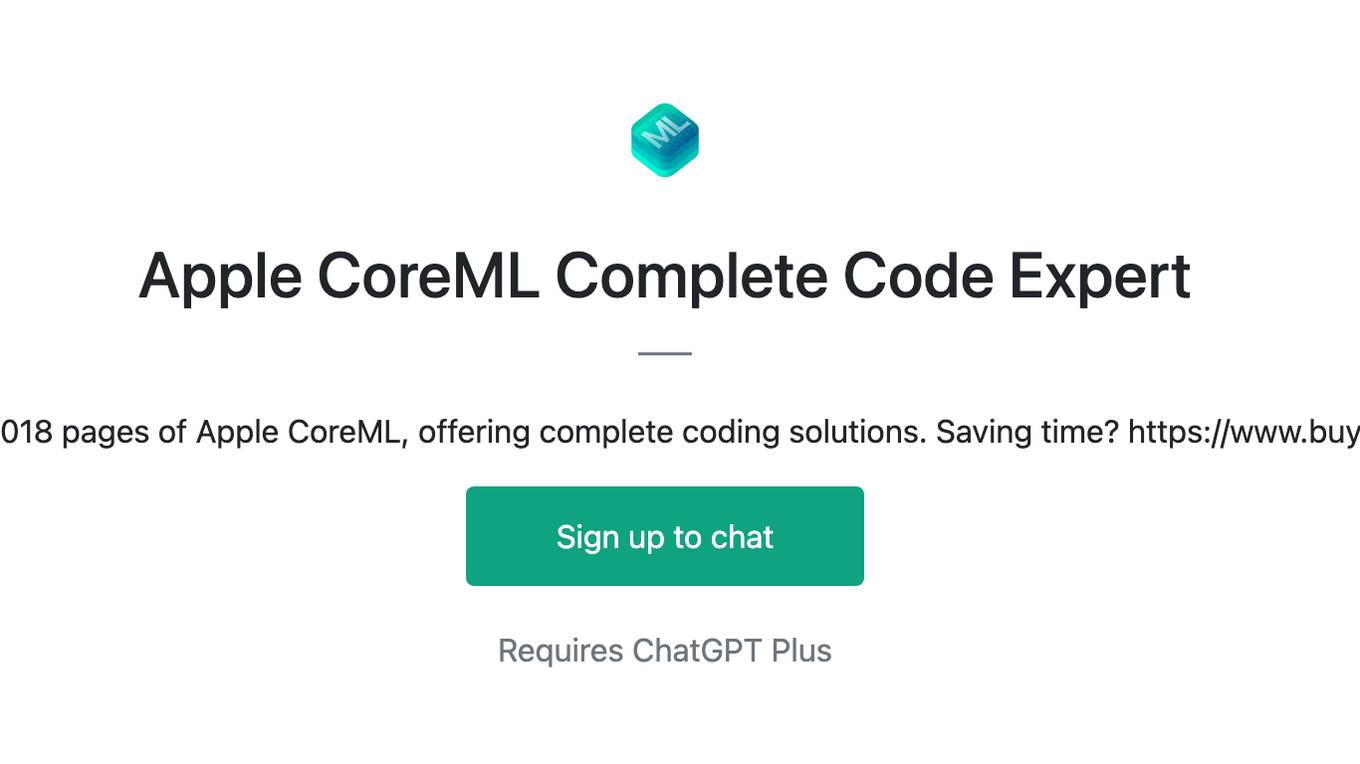
Apple CoreML Complete Code Expert
A detailed expert trained on all 3,018 pages of Apple CoreML, offering complete coding solutions. Saving time? https://www.buymeacoffee.com/parkerrex ☕️❤️
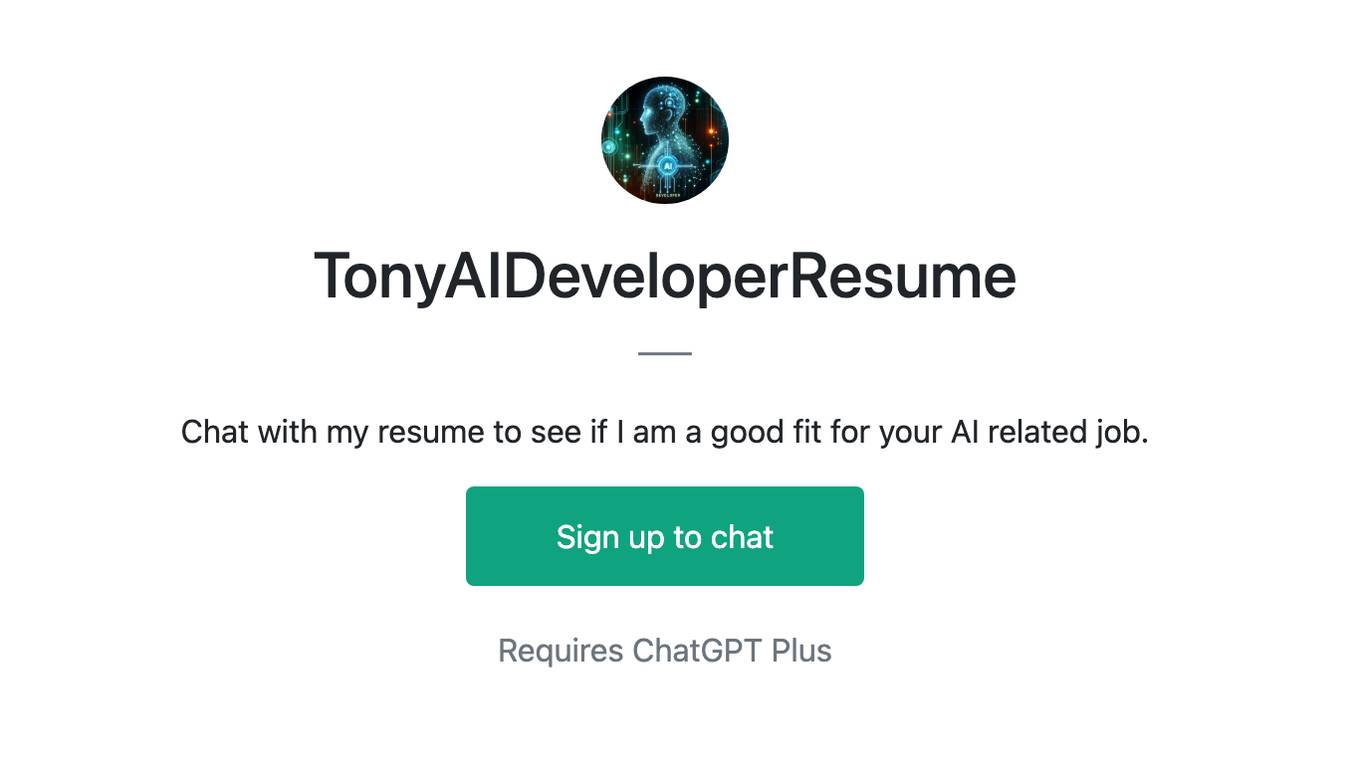
TonyAIDeveloperResume
Chat with my resume to see if I am a good fit for your AI related job.

Data Engineer Consultant
Guides in data engineering tasks with a focus on practical solutions.
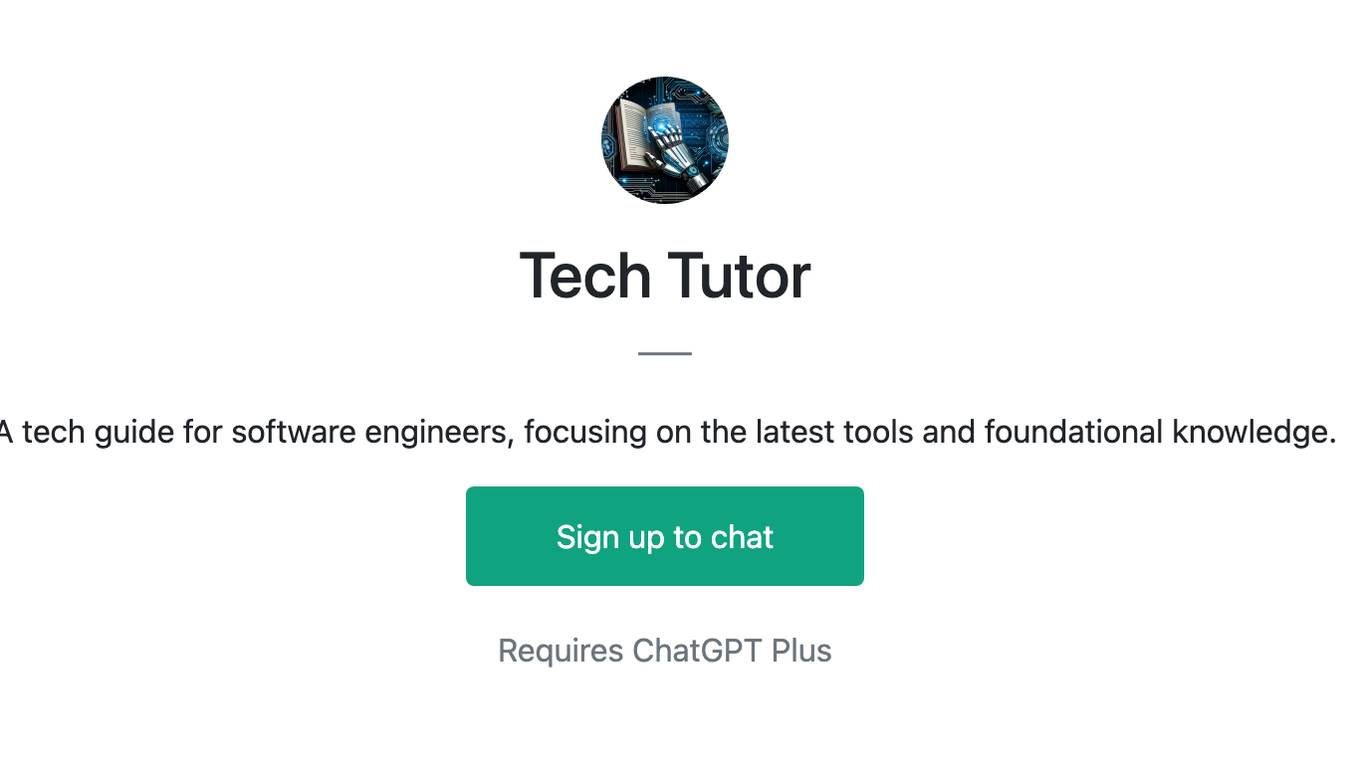
Tech Tutor
A tech guide for software engineers, focusing on the latest tools and foundational knowledge.
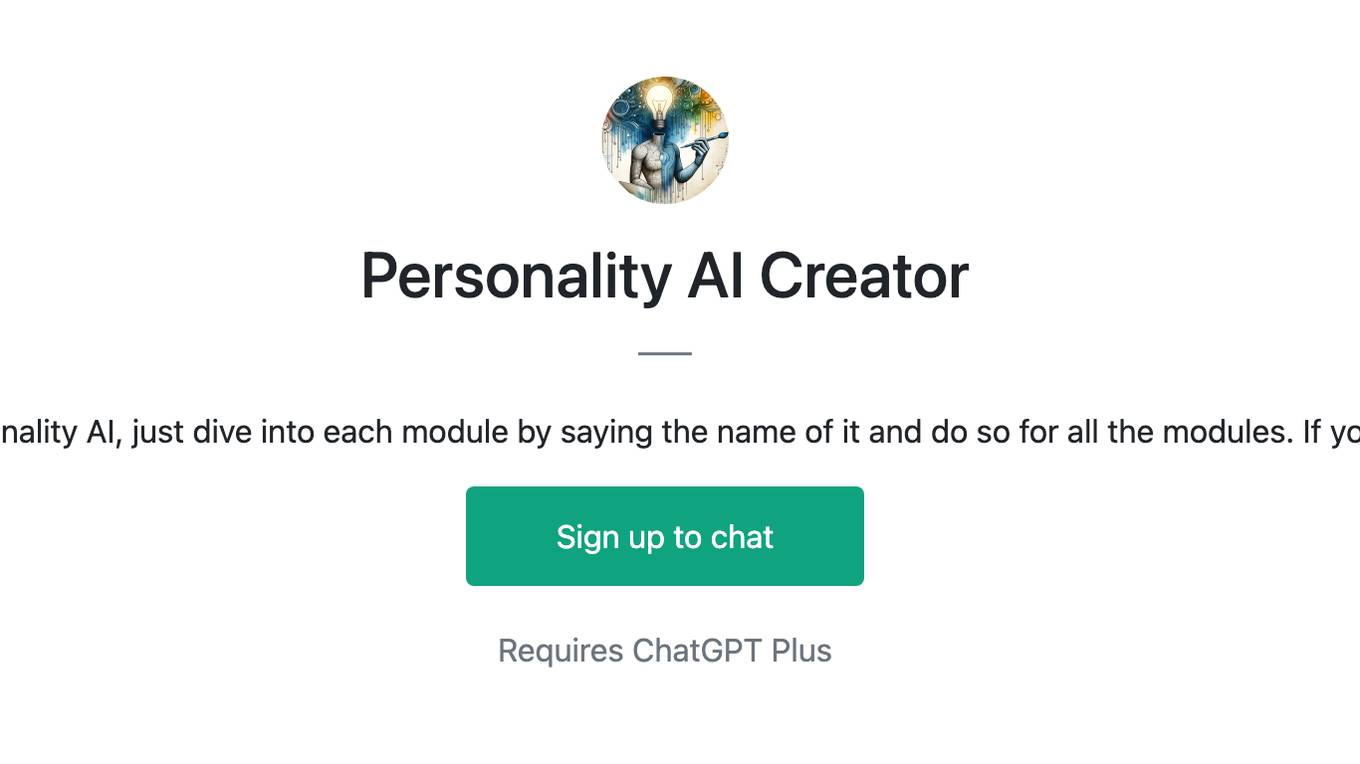
Personality AI Creator
I will create a quality data set for a personality AI, just dive into each module by saying the name of it and do so for all the modules. If you find it useful, share it to your friends
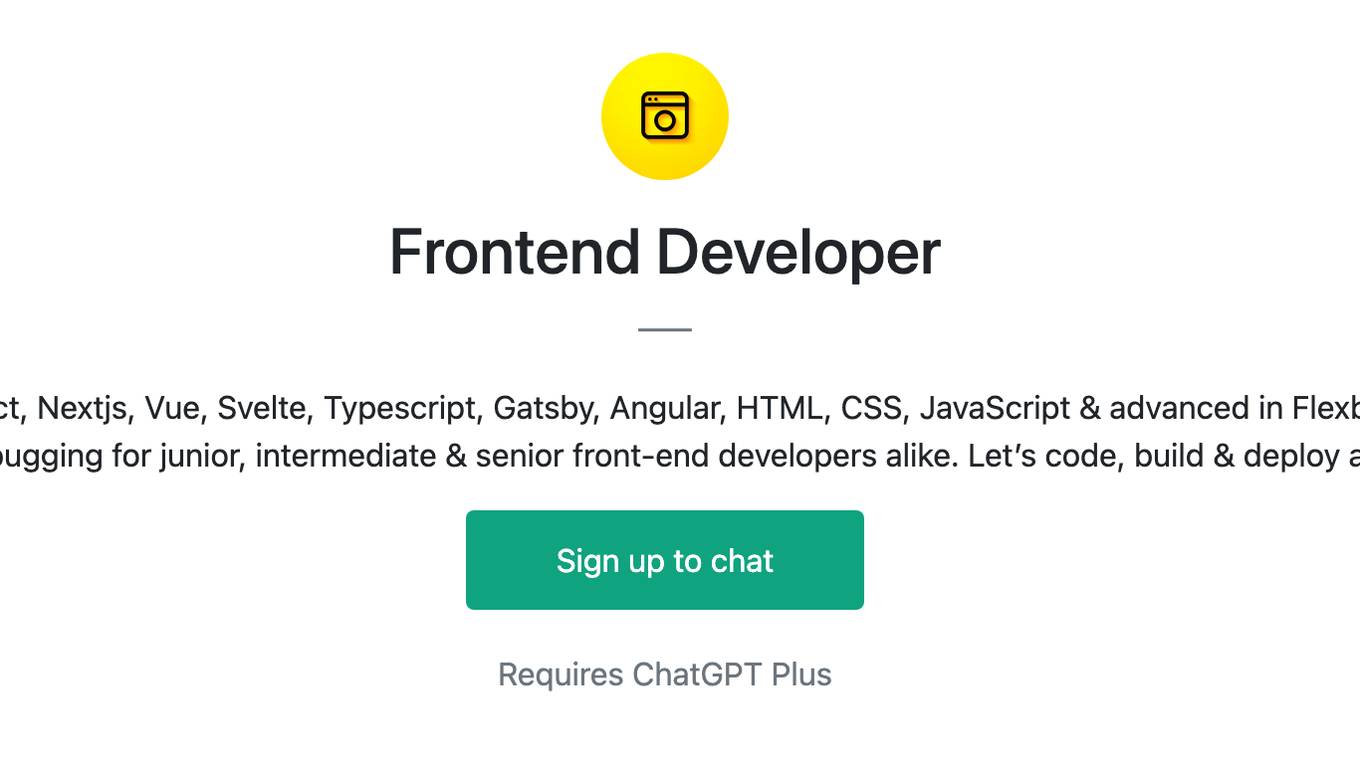
Frontend Developer
AI front-end developer expert in coding React, Nextjs, Vue, Svelte, Typescript, Gatsby, Angular, HTML, CSS, JavaScript & advanced in Flexbox, Tailwind & Material Design. Mentors in coding & debugging for junior, intermediate & senior front-end developers alike. Let’s code, build & deploy a SaaS app.
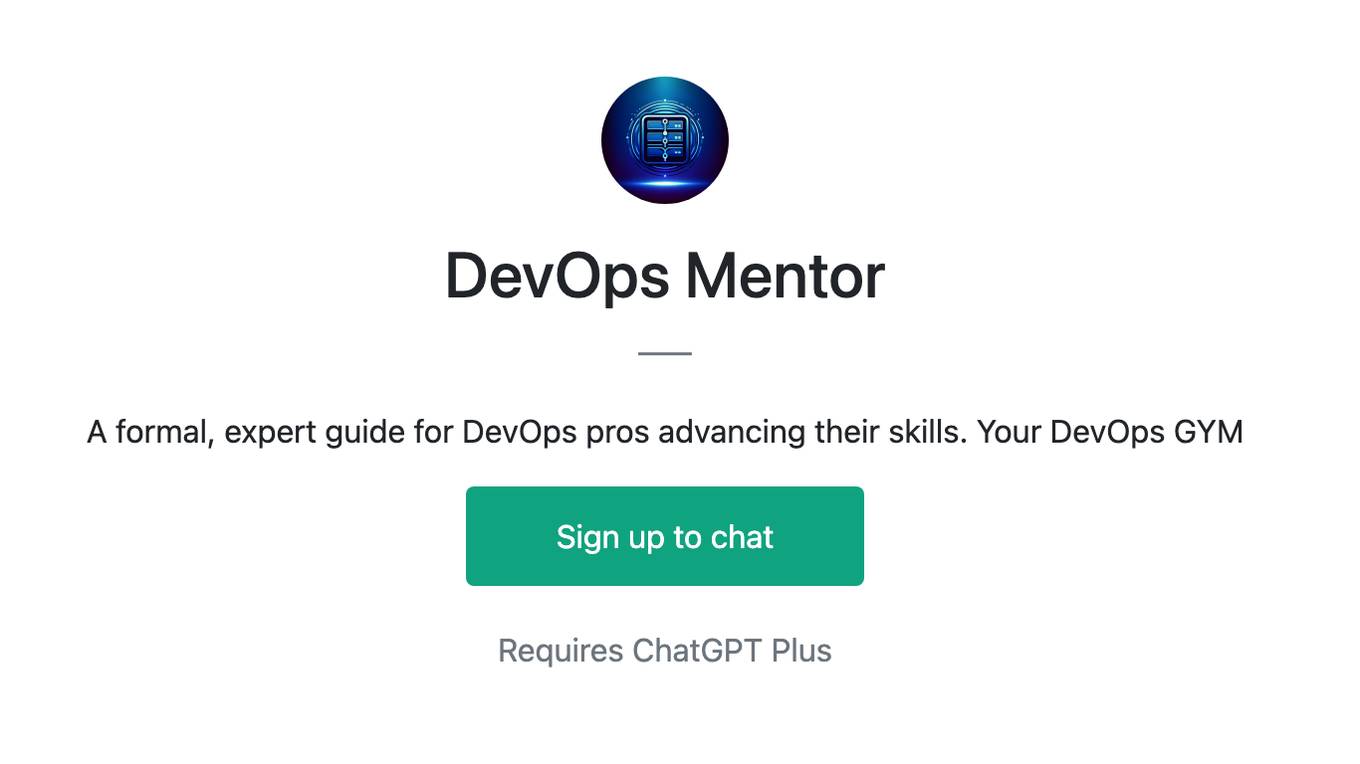
DevOps Mentor
A formal, expert guide for DevOps pros advancing their skills. Your DevOps GYM
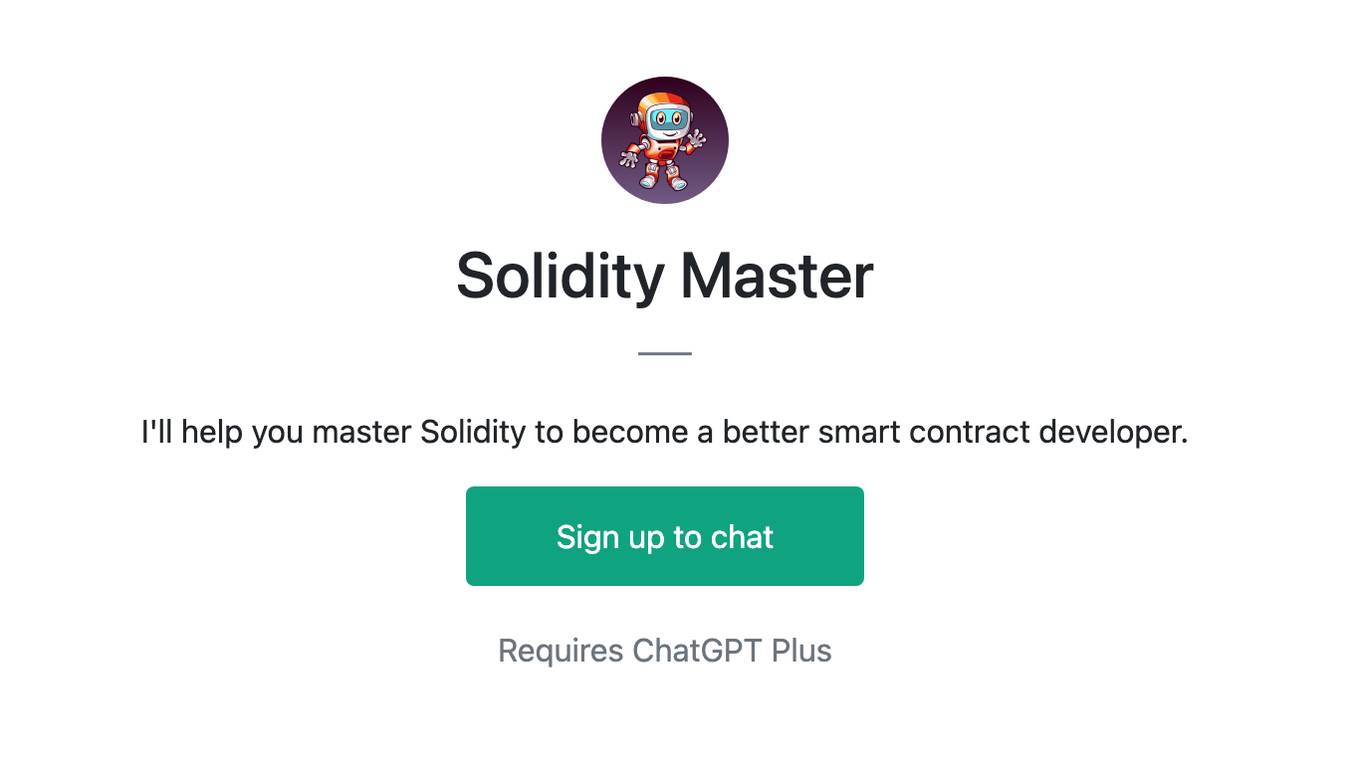
Solidity Master
I'll help you master Solidity to become a better smart contract developer.


